
Perspectives
Print Post Approved: PP100007890
MAGAZINE
AND MIDWIVES’ ASSOCIATION VOLUME 81 NO 2 APRIL / MAY 2024 page 20
AGED CARE PAY WINNERS REGULARS Your letters p.06 Professional
p.40 Health & Wellbeing p.42 Crossword p.45 PARKING Wyong nurses win parking battle
THE
OF THE NSW NURSES
HOUSING AFFORDABILITY
page
Nurses face housing affordability and rental stress page 16 2024 LOG OF CLAIMS 15% pay claim is “ambitious but reasonable”
12
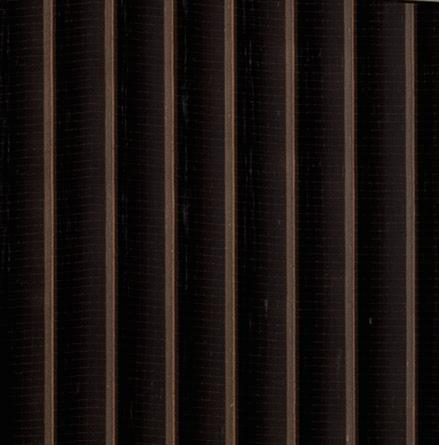



GET A BUSINESS ADVANTAGE^ with a fully maintained operating lease.





■ One monthly invoice




■ No cash payment upfront
■ Flexible lease terms from 24 to 60 months*


■ Outsource some or all of your fleet administration*

















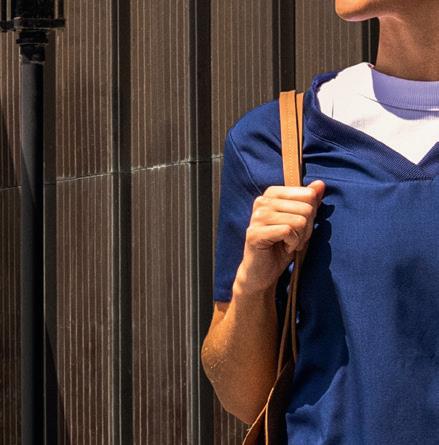



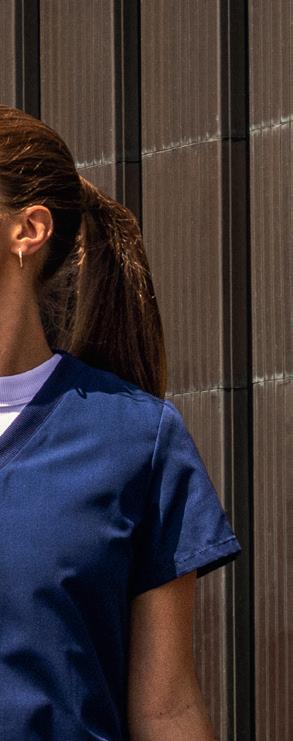


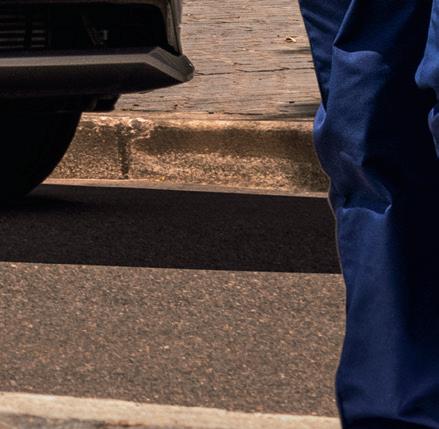
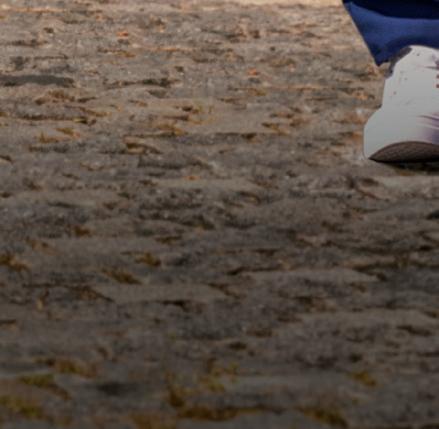
Information was current at time of publishing and is subject to change. Applicants must have a valid ABN, GST registered for at least 2 years and a business turnover greater than $125,000 per year. All applications are subject to credit approval criteria. Terms and conditions, fees and charges apply. The information is general in nature and does not constitute financial or tax advice, and does not take into account specific financial circumstances, situations or needs. Independent financial and tax advice should be sought. Fees and charges can include vehicle finance, stamp duty, on road costs, fuel management, replacement tyres, scheduled servicing and maintenance, re-registration over the period of the lease, 24-hour roadside assistance, accident management services, toll and infringement management. ^Mitsubishi Motors Business Advantage operating leases are provided by Fleet Partners Pty Ltd trading as Mitsubishi Motors Business Advantage - FP (ABN 63 006 706 832). Fleet Partners is not related to Mitsubishi Motors Australia Limited. *Lease terms are subject to a maximum limit of 200,000 kilometres over the period of the lease. #Level of outsourcing will depend on optional extras chosen which will vary lease fees. Fleet administration included at no additional cost for the term of the lease; registration and CTP renewals, maintenance & repair approval and payment, replacement tyres (as quoted), roadside assistance, accident management and infringement management. Fleet administration at an additional cost over and above the monthly lease rate is; fuel costs, fuel card management, toll costs, toll management and replacement tyres (above quoted limit). Discover a tailored solution today. Visit your local Mitsubishi Dealer or call 1300 020 272.











Contacts
NSW Nurses and Midwives’ Association
For all membership enquiries and assistance, including The Lamp subscriptions and change of address, contact our Sydney office.
Sydney Office
50 O’Dea Avenue, Waterloo NSW 2017 (all correspondence)
T 8595 1234 (metro) 1300 367 962 (non-metro)
F 9662 1414 E gensec@nswnma.asn.au
W www.nswnma.asn.au
Hunter Office
8–14 Telford Street, Newcastle East NSW 2300
NSWNMA Communications Manager
Gia Hayne
T 02 8595 1234 (metro) T 1300 367 962 (regional)
For all editorial enquiries, letters and diary dates
T 8595 1234 E lamp@nswnma.asn.au
50 O’Dea Avenue, Waterloo NSW 2017
Produced by Hester Communications T 0414 550 376
Press Releases
Send your press releases to:
F 9662 1414 E gensec@nswnma.asn.au
Editorial Committee
Shaye Candish, NSWNMA General Secretary
Michael Whaites, NSWNMA Assistant General Secretary
O’Bray Smith, NSWNMA President
Michelle Cashman, Long Jetty Continuing Care
Richard Noort, Justice Health
Liz McCall, Byron Central Hospital
Diane Lang, South East Regional Hospital, Bega Valley
Karen Hart, Wagga Wagga Base Hospital
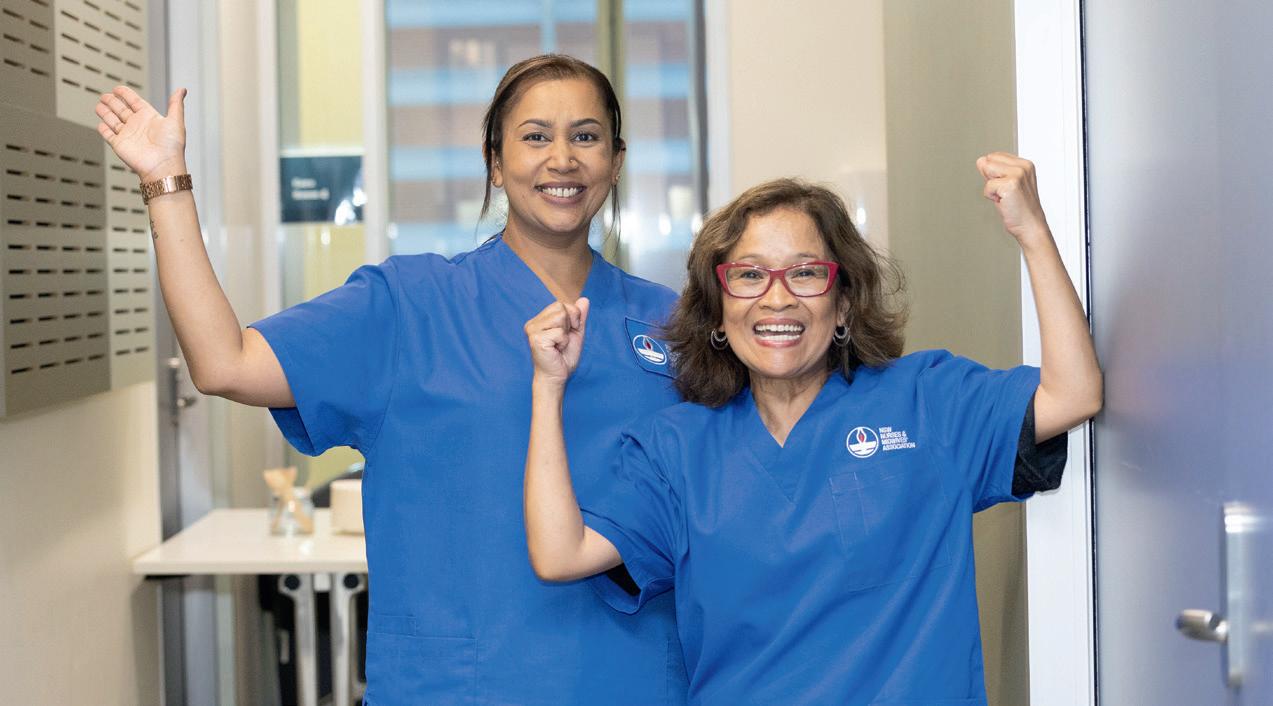
12
Years of campaigning by the NSWNMA and other unions has delivered a further 23 per cent increase to award wages for Certificate III aged care workers.
14
Branches are set to vote on a recommended log of claims containing a proposed pay rise that would make PHS pay comparable with Queensland.
Corporate price gouging causes inflation: report
The cost-of-living crisis has been caused by companies squeezing consumers and suppliers to breaking point, says report from ACTU inquiry.
16 HOUSING AFFORDABILITY Nurses face housing
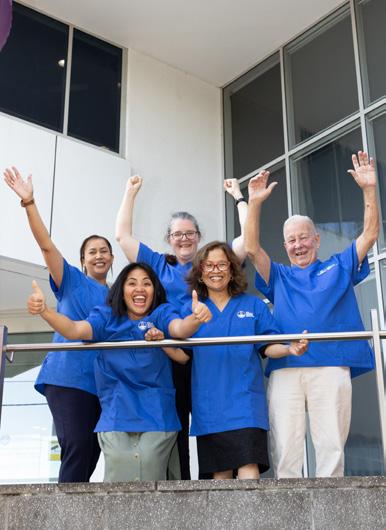

THE LAMP APRIL / MAY 2024 | 3
Advertising
Nicholson
269 750 F 9662 1414 E dnicholson@nswnma.asn.au Information & Records Management Centre To find archived articles from The Lamp, or to borrow from the NSWNMA nursing and health collection, contact: Adrian Hayward, Coordinator. T 8595 2175 E gensec@nswnma.asn.au The Lamp ISSN: 0047-3936 General Disclaimer The Lamp is the official magazine of the NSWNMA. Views expressed in articles are contributors’ own and not necessarily those of the NSWNMA. Statements of fact are believed to be true, but no legal responsibility is accepted for them. All material appearing in The Lamp is covered by copyright and may not be reproduced without prior written permission. The NSWNMA takes no responsibility for the advertising appearing herein and it does not necessarily endorse any products advertised. Authorised by S. Candish, General Secretary, NSW Nurses and Midwives’ Association, 50 O’Dea Avenue Waterloo NSW 2017 Privacy Statement The NSWNMA collects personal information from members in order to perform our role of representing their industrial and professional interests. We place great emphasis on maintaining and enhancing the privacy and security of your personal information. Personal information is protected under law and can only be released to someone else where the law requires or where you give permission. If you have concerns about your personal information, please contact the NSWNMA office. If you are still not satisfied that your privacy is being maintained, you can contact the Privacy Commission. Subscriptions for 2024 Free to all Association members. Professional members can subscribe to the magazine at a reduced rate of $30. Individuals $84, Institutions $140, Overseas $150
VOLUME 81 NO. 2 APRIL / MAY 2024 REGULARS 5 Editorial 6 Your letters 26 Branch Beat 28 Ask Shaye 30 Education calendar 32 Competition 36 News in brief 40 Professional Perspectives 41 Nursing Research 42 Your Health & Wellbeing 45 Crossword
Printed by Printed by IVE Group Sydney
Danielle
T 8595 2139 or 0429
CONTENTS
2024 LOG OF CLAIMS
15% pay claim is “ambitious but reasonable”
COST OF LIVING
insecurity and rental stress Many NSW nurses and midwives are struggling to find affordable and secure housing. 20 PARKING Wyong nurses win parking battle NSWNMA members at Wyong Hospital on the Central Coast have blocked the introduction of paid parking for staff and visitors. AGED CARE PAY WINNERS Your letters p.06 Health Wellbeing p.42 THE MAGAZINE OF THE NSW NURSES VOLUME 81 NO 2 APRIL MAY 2024 page 20 Nurses face housing affordability and rental page 16 15% pay claim is “ambitious but reasonable” page 12 COVER STORY 23% pay rise for aged care AINs
COVER : Aged care members Angelin Maharaj, Malou Collis, Lannelle Bailey, Jocelyn Hofman and Anthony Williams Photographed by Sharon Hickey 74,374 The Lamp is independently audited under the AMAA's CAB Total Distribution Audit. Audit Period: 01/04/2020 31/03/2021 (Yearly Audit) Avg Net Distribution per Issue The Lamp is printed on PEFC certified paper. The paper is certified under the Programme for the Endorsement of Forest Certification (PEFC) which assures consumers that the utilised forestry products can be traced from a certified, sustainably managed forest through all stages of processing and production by a chain of custody process. The Lamp is wrapped in Ecopure film which is recyclable and biodegradable. 8
HESTA ABN 64 971 749 321 is issued by H.E.S.T. Australia Ltd ABN 66 006 818 695 AFSL 235249. Consider whether this product is appropriate for you by reading the PDS and Target Market Determination at hesta.com.au/pds.
Past performance does not indicate future performance.
SuperRatings 10 Year Platinum Performance 2014-2024 (MySuper), see superratings.com.au/ratings-and-awards.
Product ratings and awards are only one factor to be considered. For more information on Super with impact, see hesta.com.au/impact. At HESTA, we believe in providing strong long-term returns while having an impact on the world our members retire into. Learn more at hesta.com.au A top performing fund working for real


world impact.



Candish
Working for better pay on multiple fronts
Pay has been lagging behind the soaring cost of living. It’s time to fix this.
It is very good news that the Fair Work Commission has topped up the wages of Assistants in Nursing and care workers in aged care by an extra 8 per cent on top of the 15 per cent it awarded last year - a 23 per cent increase overall.
The Commission’s ruling will set a new minimum award rate of $1223.90 per week for Certificate 3-qualified AINs (see pp 8-9).
“The work of aged care sector employees has historically been undervalued because of assumptions based on gender,” the Commission said.
These increases are highly deserved with the increased responsibilities and additional training needed in aged care since the COVID-19 epidemic – a fact the Commission highlighted.
These increases are formidable, deserved and a testament to the passion and commitment of our aged care members who have campaigned for them over many years.
Less impressive for aged care is the recent report of the Aged Care Taskforce, which in our opinion, failed to address the quality of care and workforce issues that are fundamental for the sector.
The Taskforce failed to adequately address the need for greater financial transparency from providers. The Royal Commission into Aged Care Quality and Safety provided many examples of the profitability of aged care to the expense of vulnerable residents and workers.
In our view the Taskforce recommendations will not improve the workforce shortages across the sector, nor will it address the quality of care being received within the facilities.
There needs to be greater financial transparency from providers. This is a totally reasonable ask when
Love for the job can’t pay the bills and we need to speak up and talk about what we are worth.
75 per cent of aged care funding comes from taxpayers. The current reporting requirements are still too opaque to see where this funding is being spent.
TIME FOR A RESET ON PAY
The success of the work value case in aged care has encouraged the ANMF to pursue a similar case for the Nurses Award on the basis that nurses and midwives’ work has never been properly valued. If successful, the application would ensure the recognition of work value given to nurses and AINs in the Aged Care work value case, will be extended to all award-covered nurses, midwives and AINs with the 15 per cent just the beginning. It will also contend that award rates are set too low, stemming from the historical, gender-based undervaluation of nursing and midwifery care work.
Better pay for nurses and midwives in all sectors is not just about fairness, it is about necessity. It is also achievable.
Cost of living pressures have been biting working people hard for some time. The results of a recent inquiry initiated by the ACTU and chaired by former Australian Competition and Consumer Commission chair Professor Allan Fels have been insightful about the origins of this crippling inflation (see pp 14-15).
Professor Fels found most of the inflation observed in the wake of the pandemic was a consequence of price gouging by corporations, particularly energy companies and supermarkets.
His findings are consistent with international research that
challenges the economic orthodoxy that says inflation begins with higher wages that are passed on to prices.
When workers ask for improved wages, this is often thrown at us by employers, governments and media. It no longer washes.
Household costs have been soaring in other areas too as our investigations into housing affordability among nurses and midwives have found (see pp 16-19). Exorbitant rents and crippling interest rates for homeowners are hurting many of our members.
And in this tough environment the government has been startlingly insensitive by introducing parking fees for patients and staff (see pp 20-21).
The cost-of-living crisis is part of the context in which we have put our proposed claim for a 15 per cent pay increase in the Public Health System for members to consider (pp 12-13).
The other part, of course, is the need to recruit and retain the workforce we need to implement safe staffing ratios.
Nurses and Midwives have been uncomfortable about talking about pay.
But love for the job can’t pay the bills and we need to speak up and talk about what we are worth.
As aged care has showed, when we do this, the evidence is on our side, and we win. n
THE LAMP APRIL / MAY 2024 | 5
EDITORIAL
GENERAL SECRETARY
SHAYE

24 May –
Have your Say
Cruise Sydney Harbour EXPERIENCE THE SPECTACULAR VIVID SYDNEY
FEATURED LETTER
Standing up for inclusion
15 June 2024
Captain Cook Cruises exclusive offers for NSWNMA members for Vivid Sydney
All cruises depart from Darling Harbour, King St Wharf, nightly during Vivid Sydney.
VIVID LIGHTS CRUISE
Save up to 45% • From $25.30 (normally $46pp)
Experience the full canvas of Vivid Sydney lights from the water. Departing 5.30pm and 7.30pm nightly. 1.5 hours of relaxed cruising.
5PM VIVID SPECIAL DINNER
Save up to 25% • From $71.25 (normally $95pp)
Perfectly timed for sunset, enjoy your 2-course meal before the second big reveal of the night at 6pm: ‘lights on’ for Vivid Sydney. Depart at 7pm.
7PM VIVID SPECIAL DINNER
Save up to 25% • From $93.75 (normally $125pp)
Quality contemporary Australian 3-course dining and live entertainment, set against the spectacular Vivid Sydney lights. 3 hours of relaxed cruising.
7PM GOLD PENFOLDS DINNER
Save up to 10% • From $251.10 (normally $279pp)
The quintessential Vivid Sydney experience: 6-course degustation dining of Vivid Gold Penfold’s Dinner in a 3 hours of relaxed cruising.
BOOK ONLINE AT CAPTAINCOOK.COM.AU
using promo code L6EBL8A or call 02 9206 1111






WIN!
We are giving away two spectacular prizes:
• 7pm Vivid Special Dinner for two ($250 value)
• 5pm Vivid Special Dinner for two ($190 value)

I chose to become a delegate after the encouragement I received from the Association, because I want to help culturally and linguistically diverse (CALD) nurses who are committed to change the workplace culture of covert racism.
I have experienced the impact of covert racism for years whilst working in the health system and I was beginning to question my own sanity. That was until I joined the CALD reference group at the NSWNMA. I realised how widespread the experience of covert racism is amongst CALD nurses. Acknowledging that this was a shared experience amongst us all, helped lift a load off my shoulders.
As a mental health nurse, I can now walk around with my head held high and continue to make a difference in the lives of people experiencing mental illness.
In my career I have been the subject of racialised bullying in the workplace. My experience and clinical expertise have been disparaged and questioned by senior colleagues, who would say things to the effect of “Pumla, because you are from the ‘third world’ you have no idea about ‘first world’ medicine.” While this was clearly an overtly racist comment, I also experienced instances of ongoing and persistent covert racism. This manifested as microaggressions, gossip and bullying, and I am not alone. Many CALD nurses experience derogatory comments, particularly those who have trained overseas, who can be seen as less experienced. Covert racism begins when bullying and racism meet, where CALD nurses’ experience and clinical expertise is continuously undermined or overlooked, and they are perceived as less qualified.
When I raised my voice about my experience in the workplace, it was often met with a perception that speaking up about racism meant I was the problem.
I am now observing many younger nurses wanting to make a difference to the culture of our hospitals, but they are leaving because similar tactics are being used to discourage them. Sadly, some are even becoming bullies themselves in an attempt to survive in the system.
The NSWNMA’s CALD group is committed to changing the culture inside our workplaces, helping nurses and midwives to stand up to racism, raise awareness, maintain their resilience, and remain committed to providing excellent care to patients. I want to be a part of that group of nurses who are bringing about change. We acknowledge anyone can experience racism and we say collectively that it is not welcome in our professions. As a union we stand for inclusion, we stand for equality, and we stand for unity through acceptance and celebration of diversity.
Pumla Coleman, RN
6 | THE LAMP APRIL / MAY 2024 YOUR LETTERS
COMPETITION *Conditions apply. Offer valid for travel 24/5/24 – 15/6/24 excluding Saturdays and Sunday 9 June. Competition entries from financial NSWNMA members only and limited to one entry per member. Competition opens 1 April 2024 and closes 19 May 2024. Prize drawn on 20 May 2024.
Scan to enter
Featured Letter
Wallsend Aged Care’s uncertain future
For a little over a decade the future of Wallsend Aged Care facility has been uncertain.
The facility was originally an almost 100-bed facility across three floors, one being a dementiaspecific ward, and the other two consisting of aged care and NDIS residents.

Nursing students deserve paid placements
Thank you, NSWNMA, for fighting for paid placements for students on placement.

Our governments, both state and federal, must rethink how we can grow our nursing and midwifery workforce. Student poverty is very real, and has worsened with mounting costof-living pressures.
Nurse by day, drag queen by night
Over the years, as residents moved to other facilities or passed away, the number of residents declined, and then we went through the pandemic. Since the pandemic, we have had no new admissions and now we are down to one floor with 25 residents.
On 22 February, Hunter New England Health told families and staff that the facility would be closing for good. This change will affect around 40 nursing staff and since the announcement, NSWNMA members have been in regular discussions with HR about what our options are for redeployment. But many questions remain unanswered by the LHD. What options will nurses get about where they are redeployed? What entitlements do we have to retrain for, and will we get mentoring for new roles?
Some staff are also close to retirement and would prefer redundancy, which HR has stated would not be offered.
Staff are not only concerned about their own future, but also the future of our residents. Many residents are high-risk mental health patients or have suffered traumatic brain injuries from motor vehicle accidents. Once our facility closes, many of these residents will be left in limbo and will fall into a crack in our healthcare system, with limited options for long-term, appropriate care, support services or housing options. For some residents, Wallsend Aged Care has been their home for over 25 years.
The closure of the facility has been a very stressful time for staff, patients and their families, and we just want to know where we stand.
Sharee Murphy, EN
The cost of unpaid placements to the individual is huge – there are lost wages if they are lucky enough to have work whilst studying, plus extra costs such as travel, possibly parking (another bugbear for many of us), and accommodation costs when away from home. I have heard some very concerning conversations amongst our students, worried they can no longer afford to continue studying. Studying is by no means free. Students also have to contend with a HECS debt and repayment of any student loans. Any support that can be provided would be helpful.
We all know experienced nurses and midwives are leaving health, but it feels like there are less entering the system. I was lucky enough to be one of the last hospital-based trained nurses, and I wonder if I would have chosen nursing if I had the same costs of study and placement that our future nurses face today.
If governments are serious about providing a quality health service, they need to grow and retain the workforce. I know paid placements is only one strategy, but it is an important one. Please let’s keep up the pressure on government to change this.
Jill Telfer, NUM, Educator

I’m Midaz, a nursing assistant by day, and a Sydney drag queen by night. Recently, I had the opportunity to join the NSWNMA float for the Mardi Gras parade. This was my second year of doing so, and it was amazing. It was a night filled with fun, glitter, sparkles, dancing and love! And maybe some sore feet after all the walking, but nothing a group of nurses and midwives couldn’t handle.
This year, the Mardi Gras theme was “Our Future”. Our float featured what we want the future of nursing to be. We marched under the banner “A strong voice for a better future”. A future of safe health care for all. A future of safe staffing ratios, for nurse and patient safety. A future of inclusivity and equal health care to all, regardless of patient gender, race or sexual orientation. As nurses, midwives and healthcare workers, not only are we a very diverse group, but we also tend to everyone who happens to find themselves under our care. But there’s still more to be done to break the stigma, whether it’s stigma amidst our own teams, or stigma and prejudice towards our patients.
Walking down Oxford Street, it was amazing and inspiring to see LGBTQIA+ nurses and midwives come together, and to have the support and loud cheers from the crowd, all for our future. A future for an inclusive, accessible, and quality health system for all.
Midaz, AiN
Advertise in The Lamp and reach more than 75,000 nurses and midwives.
To advertise contact Danielle Nicholson 02 8595 2139 / 0429 269 750 dnicholson@nswnma.asn.au
THE LAMP APRIL / MAY 2024 | 7
nurse shop –
all your nursing and midwifery supplies eNurse.com.au
WIN
to eNurse. EMAIL YOUR LETTERS TO: Editorial Enquiries at lamp@nswnma.asn.au Please include a high-resolution photo along with your name, address, phone and membership number. Letters may be edited for clarity and space. Anonymous letters will not be published.
Australia’s one stop
for
If there’s something on your mind, send us a letter and have your say. You could
scrubs to the value of $50 thanks
23% pay rise for aged care AINs
Years of campaigning by the ANMF NSW and other unions has delivered a 23 per cent increase to award wages for Certificate III aged care workers.
The Fair Work Commission has ordered new pay increases for aged care workers in further recognition that this mostly female workforce has been historically undervalued.
On 15 March, the Commission ruled that award rates for direct care employees should be increased substantially beyond the 15 per cent interim increase it awarded in 2023.
The Commission ordered that assistants in nursing (AINs) and personal care workers (PCWs) with a Certificate III qualification should receive a 23 per cent increase to award wages, including last year’s 15 per cent increase.
The Commission’s ruling will set a new minimum award rate of $1223.90 per week for Certificate IIIqualified AINs.
The new award rate for a team leader will be set at $1370.80.
For an AIN who has undertaken a Certificate IV unit of competency – for example, in medications –the new award rate will be either $1272.90 or $1321.80, depending on years of experience.
The Commission has yet to decide when the increases will take effect.
“The work of aged care sector employees has historically been undervalued because of assumptions based on gender,” the Commission said.

The Commission ordered that assistants in nursing (AINs) and personal care workers (PCWs) with a Certificate III qualification should receive a 23 per cent increase to award wages, including last year’s 15 per cent increase.
The decision is the latest outcome of a work value case run by unions in the Commission.
The case initially resulted in a record 15 per cent award rate increase for more than 250,000 aged care workers from 1 July 2023.
The federal Labor government allocated $11.3 billion to cover that increase over four years.
MORE SKILLS AND RESPONSIBILITIES SINCE COVID
In its latest decision, the Commission found that enhanced infection prevention and control measures have become embedded in aged care since the COVID-19 pandemic, leading to the exercise of additional
COVER STORY 8 | THE LAMP APRIL / MAY 2024
AGED CARE AINS MALOU COLLIS, LANNELLE BAILEY AND ANTHONY WILLIAMS

‘This pay rise is a great reminder that being a member of the NSWNMA means your whole union team will always have your back.’
–
Shaye Candish, General Secretary, NSWNMA
FWC decision on RN/EN pay to come
Registered and enrolled nurses in aged care were frustrated to learn that the Fair Work Commission delayed a decision to make changes to their pay rates, as part of 15 March ruling.
However, in more hopeful news, the FWC will consider those pay rises as part of another work value case being run by the NSWNMA’s federal body the Australian Nursing and Midwifery Federation (ANMF). The ANMF is optimistic for a positive outcome in this next case, based on the recent ruling on pay being historically undervalued.
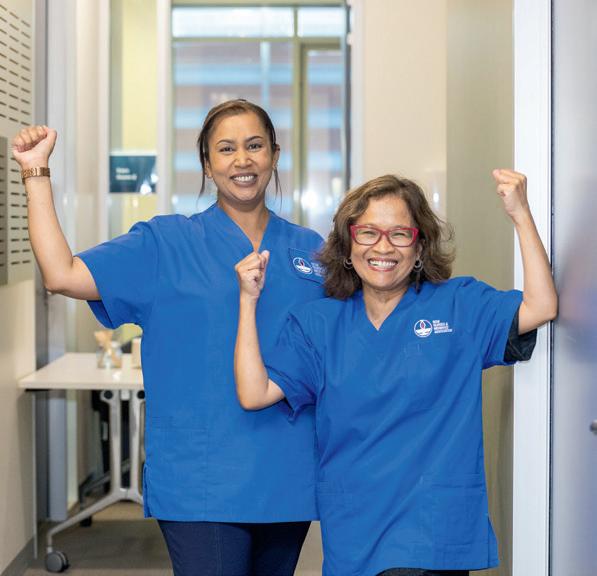
skills and responsibilities, additional training and changes to the work environment.
The Commission said this had contributed to an increase in the work value of direct care employees.
Unlike the 2023 decision, this year’s additional award wage rises do not cover registered and enrolled nurses.
Any further increases for them will be decided in a separate national work value case being run by the NSWNMA’s federal body, the Australian Nursing and Midwifery Federation (ANMF).
NSWNMA General Secretary Shaye Candish said the latest round of award wage increases was a credit to the many Association members who took part in actions to push for reform of aged care.
“For years, NSWNMA members have worked tirelessly alongside our federal counterparts at the ANMF and other unions, to win better wages for aged care workers,” she said.
“This is a massive achievement for AINs and PCWs working in the sector, and was won through the passion and hard work of union members who were willing to stand up for their rights at work.
“When union members stand together, as aged care workers we can win the pay and conditions we deserve.
ANMF Federal Secretary Annie Butler said the Commission recognised the “federal award system has failed to set minimum award rates of pay that properly recognise the addition to work value affected by the transformation of nursing into a profession”.
“We are also very pleased the Commission is proposing a benchmark, which will seek to address this historical, genderbased undervaluation,” Annie said.
“ANMF witnesses, including our members, union officials and academic experts, all gave evidence that the work performed in aged care has changed dramatically over the last two decades.
“Our evidence was accepted that the work has become more complex due to the higher needs and greater acuity of aged care residents and people receiving care at home. “The Commission also agrees the impact of COVID on delivery of care has brought about permanent change to the waywork is performed.” n
‘Our evidence was accepted that the work has become more complex due to the higher needs and greater acuity of aged care residents and people receiving care at home.’
– Annie Butler, Federal Secretary, ANMF
“This pay rise is a great reminder that being a member of the NSWNMA means your whole union team will always have your back.
“Over the coming weeks, the Fair Work Commission will hold hearings to determine issues relating to the rollout of this increase. This includes when pay increases will come into effect.
“Rest assured, your union’s industrial experts will be at these hearings,
fighting for the best outcomes for members.
“We are calling on the federal government to fully fund these increases, and for aged care providers to pass these increases on to staff.
“Members of the NSWNMA will be meeting with members of parliament in Canberra, to urge them to do the right thing by aged care workers.”
COVER STORY THE LAMP APRIL / MAY 2024 | 9
AGED CARE RNS ANGELIN MAHARAJ AND JOCELYN HOFMAN
n
More money, recognition and respect
For NSWNMA aged care delegate Linda Hardman, the latest work value pay rise is the fruit of two decades of union work for a better deal for staff and residents.
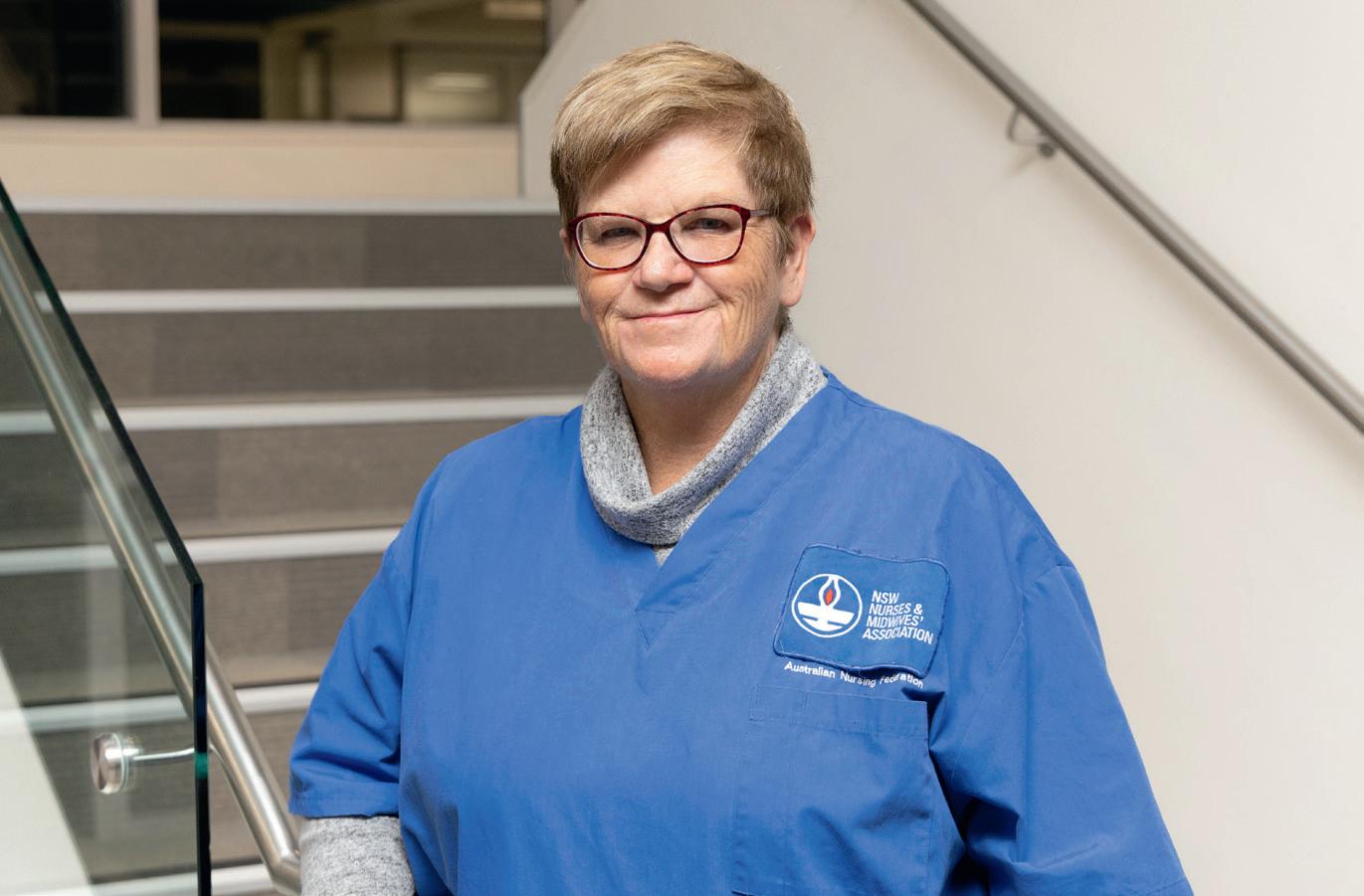
Wollongong AIN Linda Hardman arrived home from an overseas holiday to a barrage of text and social media messages congratulating her on the latest aged care work value decision.
As an NSWNMA delegate at a Wollongong nursing home, Linda has played an active part in union campaigns for aged care reform going back 20 years.
She gave evidence to the Fair Work Commission in the work value case, lobbied government ministers and other politicians, gave media
LINDA HARDMAN, NSWNMA DELEGATE
interviews, and took part in community rallies for a better deal for nursing home residents and staff.
Hence the congratulatory messages from workmates, fellow delegates and friends when the Commission announced a further increase in award rates of up to 8 per cent for aged care AINs on top of the 15 per cent it awarded last year.
“It’s a fabulous decision – I just can't believe it,” Linda said.
“It’s not only about money – it also shows the system has a bit more respect for us as workers and greater recognition of our skills.
‘I have worked in aged care for 23 years and I never thought this would happen in my working life… What a privilege to be involved in helping to achieve something so historic for aged care.’
– Linda Hardman, NSWNMA aged care delegate
“What a privilege to be involved in helping to achieve something so historic for aged care.
“I have worked in aged care for 23 years and I never thought this would happen in my working life.
“It was a privilege to take part in the work value case with other delegates – even though it was quite confronting to be giving evidence in front of the Commission.
“We were lucky to have had so much support from the NSWNMA and the ANMF in preparing our case.
COVER STORY 10 | THE LAMP APRIL / MAY 2024
“We were very honest in our evidence: we didn’t pull any punches and we made sure the Commission knew the real state of the age care sector, and what actually happens on the floor.
“It makes me really union-proud and also proud I was able to represent my colleagues in such an honest way.”
A MORE ATTRACTIVE CAREER
In 2023, Linda joined a union delegation to Parliament House in Canberra, where she spoke with the Minister for Aged Care, Anika Wells.
“I spoke from the heart and told her how I really hoped we would be able to work with her government in bringing about change. She was wonderful – I felt she actually listened to what I had to say.”
Linda believes the big pay increases in aged care will cause the sector to be seen as a more attractive career option for young people.
“Hopefully the pay increases and other reforms will encourage some people who have left the sector to come back.
“However, we have to make sure the employers do the right thing and pass on the increase in full.
“There's still a lot more to be done to improve the sector, but this increase gives us hope.
“We want to see a world-class system for our residents, and we want our work to be respected and regarded as a speciality. You have to be special to be able to work in it and be prepared to give your all, because it's mentally, physically and emotionally demanding.
“It is a hard job but it’s also an amazing privilege to be able to look after elderly people and get the chance to make a difference in that person’s life every day – because you might be the only person they see that day.”
PROUD TO BE UNION
Linda feels proud to be an NSWNMA delegate of more than 20 years “and to know I’ve done what I signed up for, which was to represent union members.”
“I’ve worked with a lot of NSWNMA organisers and they have all been wonderful mentors. I have benefited a lot from union education and training, including media training, which has given me the confidence to handle TV interviews.
“I’ve been able to learn from other delegates along the way, and to represent aged care members at the NSWNMA committee of delegates and Annual Conference.”
Linda said these forums are an opportunity to keep other sectors of the nursing profession informed about the realities of aged care.
“They are platforms for us to make sure that aged care issues get recognised within the union.
“As delegates in these bodies, we are able to stand up and speak without fear or favour, which shows we have a democratic union.” n
Aged care funding ‘still lacks transparency’
The federal government’s Aged Care Taskforce has rejected the idea of a new tax or levy to cover the sector’s rising costs and instead suggested Australians accessing care should pay more based on their personal wealth.
The taskforce, chaired by Aged Care Minister Anika Wells and with representation from the sector, said the government should continue to be the major funder of aged care, with increased participant co contributions based on means, and a strong safety net for those with lesser means.
The government has yet to respond to the recommendations.
NSWNMA General Secretary Shaye Candish said the recommendations fail to adequately address quality of care and workforce issues, “which are the fundamental concerns that need urgent attention”.
Shaye said there needs to be greater financial transparency from providers.
“We are yet to see independent evidence of aged care providers being universally financially unsustainable, especially when the royal commission evidence demonstrated so many examples of aged care being significantly profitable, often at the expense of vulnerable residents and workers,” she said.
“Until providers come clean and show transparency, the federal government and residents in these facilities should not be topping up their bank accounts.
“These recommendations will not improve the workforce shortages being felt across aged care, nor will they address the quality of care being received within the facilities.
“We are still seeing providers failing to comply with mandatory care minutes that were introduced as a result of the royal commission.” n
COVER STORY THE LAMP APRIL / MAY 2024 | 11
15% pay claim is “ambitious but reasonable”
Public sector branches are set to vote on a recommended log of claims containing a proposed pay rise that would make PHS pay comparable with Queensland.
As The Lamp goes to print branches are about to vote on a draft log of claims that is the culmination of months of consultation, more than 30 branch resolutions and intense discussion and decision making by the Log of Claims Committee (LOCC).
NSWNMA Assistant General Secretary Michael Whaites said in past award negotiations there was a history of long claims that were not taken seriously and dismissed by the Ministry of Health.
This time, he said, the LOCC decided on a concise claim that members would be prepared to “really fight for”.
“The committee settled on claims that, where possible, aligned with the Association’s Strategic Plan and reflected widely felt issues,” he said.
Michael says ratios continue to be a key claim.
“The focus for this round will be for additional funding to complete the ratios rollout across the five designated areas and additional funding for AINs to be supernumerary,” he said.
A key component of the claim is for a 15 per cent pay rise which Michael described as “ambitious but reasonable”.
He said the figure was arrived at after hearing from Professor John Buchanan, a highly respected industrial relations expert and after looking at inflation compared to public sector pay rises since the

wages cap was introduced in 2011.
"We also looked at productivity across the general economy for the same period. The LOCC felt, given the data, 15 per cent is a claim that can be justified in the Industrial Relations Commission,” Michael said.
“Fifteen per cent would also make public sector pay competitive with Queensland and return NSW nurses to being among the top paid in Australia.”
Other claims that would increase take-home pay are:
• Night duty shift penalty to 30 per cent
• Salary packaging at 100 per cent
• Continuing Education Allowance for CNE/CMEs
• Meal allowance for Patient Transport Service
This campaign will seek to implement the claims within one year.
“This is a claim that calls for the government to invest in nurses and midwives, and invest in ratios.”
– Michael Whaites, Assistant General Secretary, NSWNMA
Michael says unity, commitment and a disciplined campaign “will put us in the best possible position to achieve our claims”.
“This is a claim that is aimed at assisting the government to recruit and retain the workforce we need to implement ratios. This is a claim that calls for the government to invest in nurses and midwives, and invest in ratios,” he said. n
The Log of Claims Committee
The committee consisted of Shaye Candish and Michael Whaites along with:
Councillors
Sue White (Coffs Harbour)
Di Lang (South East Regional)
Delegates
Fadi Ramadan (Bulli)
Nicholas Tribbia (Blue Mountains)
Thom Hoffman (Children’s Hospital Westmead)
Peggy Smith (Muswellbrook)
Mark Brennan (Port Macquarie)
Karen Hart (Wagga Wagga)
12 | THE LAMP APRIL / MAY 2024 PHS AWARD CLAIM
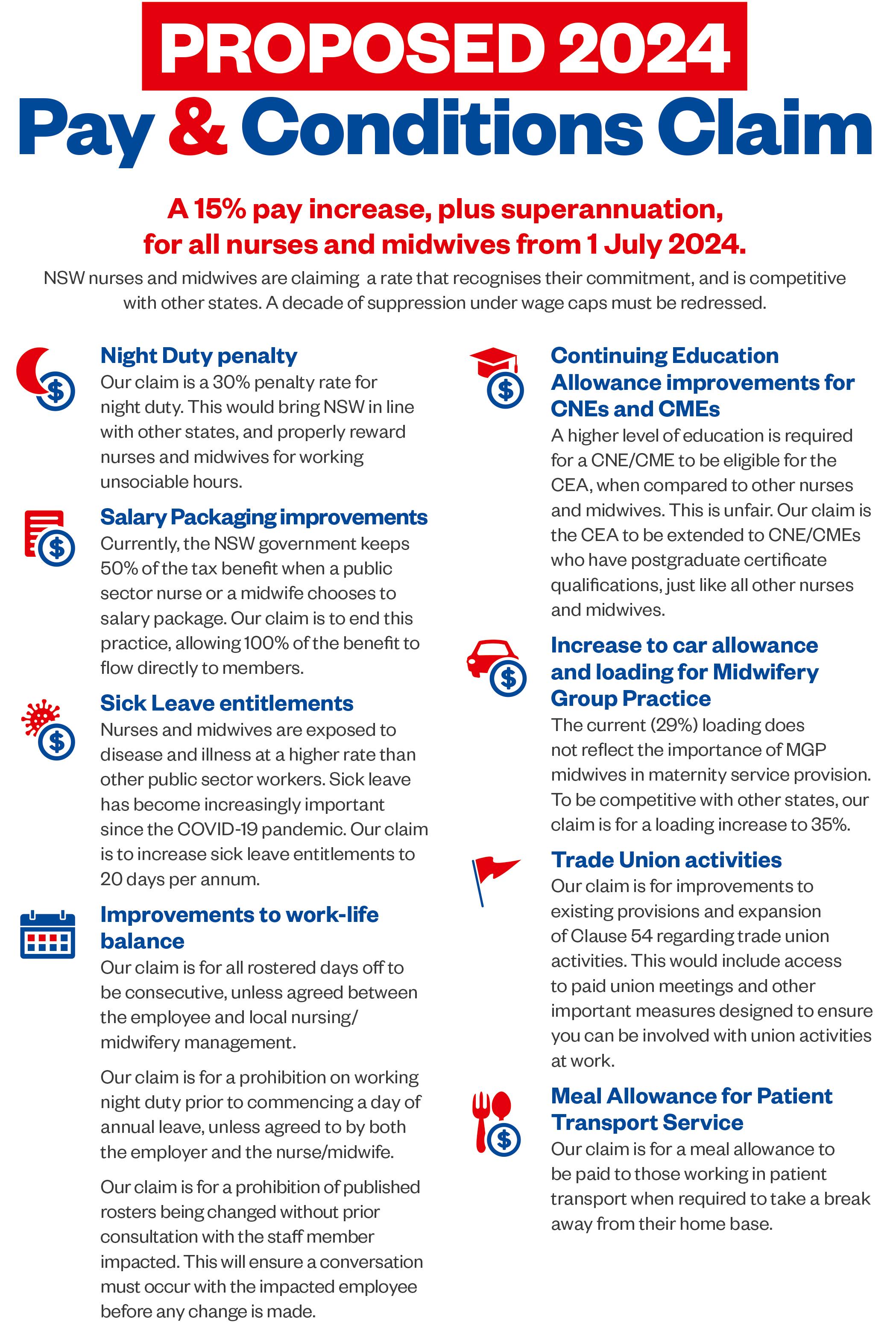
THE LAMP APRIL / MAY 2024 | 13 PHS AWARD CLAIM
Corporate price gouging causes inflation: report
The cost-of-living crisis has been caused by companies squeezing consumers and suppliers to breaking point, says report from ACTU inquiry.
An inquiry into price gouging commissioned by the ACTU and overseen by former Australian Competition & Consumer Commission (ACCC) Chair Professor Allan Fels has found most of the inflation observed in the wake of the pandemic was a product of increased profit margins.
This finding is consistent with international evidence, and challenges the orthodox economic model that says inflation begins with higher wages, which are passed on to prices.
In fact, recent inflation has seen wages lag far behind prices.
Professor Fels’ report examined a broad suite of industries, including banks, wholesale electricity and retail pricing, early childhood education and care, supermarkets and electric vehicles.
His report found that:
• corporate profits have added significantly to inflation, and many businesses have too much power over their customers, their supply chain and their workers
• many businesses are resorting to dodgy price practices
• a range of sectors are insufficiently competitive or insufficiently regulated, leading to poor consumer outcomes and higher prices.
“My conclusion is that Australians are paying prices that are too high, too often. The cause is weak and ineffective competition in too many markets,” Professor Fels said.
“The fact is that a monopoly or dominant firm is free to charge as high a price as it likes.”
WEAK GOVERNMENT OVERSIGHT
Professor Fels made strong criticisms of companies in the supermarket, banking, airline and electricity sectors.
He also criticised weak regulatory oversight of these sectors.
“There is a serious policy gap on prices,” he said.
He cited research done by Professor Lynne Chester at Sydney University, which found electricity consumers pay an extra 20 per cent relative to prices charged to large business customers, which were “not accounted for by genuine cost differences”.
“When calculated together, her bills had risen by an estimated total of $8700 in one year. Her wage had risen by just $102 in the same period.”
– Professor Allan Fels
For gas, home consumers were paying 35 per cent more than big business customers.
“The public needs a please explain,” Professor Fels said.
The report also focused heavily on the supermarket sector, which it described as among the “most concentrated in the world”.
It found that the duopoly of Coles and Woolworths were able to increase profit margins in their food and grocery segments during the inflationary period because of low competition and their ability to avoid passing on wholesale cost reductions to shoppers.
14 | THE LAMP APRIL / MAY 2024 COST OF LIVING
COST OF LIVING
“My conclusion is that Australians are paying prices that are too high, too often. The fact is that a monopoly or dominant firm is free to charge as high a price as it likes.”
– Professor Allan Fels

Consumers are not the only losers due to this concentrated market power in the supermarket sector – it is also exercised over farmers and many other suppliers.
The inquiry also found:
• a lack of competition in banking, leading to a recommendation that account numbers should be as portable as mobile telephone numbers, so customers can switch
• the price of electric vehicles in Australia is excessively high because of unwarranted import restrictions
• there are policies that make it difficult for a third major airline to compete with Qantas and Virgin on domestic routes.
SERIOUS PRESSURE ON WORKING PEOPLE
Professor Fels said he was “pleased to be doing this inquiry with the ACTU because the focus is on the effect of prices on ordinary people. We have been flooded by submissions – some 750 of them”.
One testimony in particular left a mark on him – from Danielle, a nurse.
“She has many years’ experience in her field. She works full time. But
she was considering getting a second job just to make ends meet because of the large price hikes in her bills,” he said.
“She told me of the forty per cent increase in her home insurance premium, despite the fact she had never made a claim.
“When calculated together, her bills had risen by an estimated total of $8700 in one year. Her wage had risen by just $102 in the same period.
“She told me about the spending compromises she now made every single day. She told me that there have been times when she has skipped meals or lived off toast. She told me about wearing shoes with holes in them for extended periods because she could not afford to replace them.”
Commenting on the report, economist John Quiggins said uncompetitive markets “have mostly got worse over time, particularly as public infrastructure services have been sold off to private monopolies”.
“In the case of infrastructure utilities, the remedy in most cases is to abandon the failed experiments of privatisation and corporatisation, and return to public ownership,” he said.
“Ideally, this would involve a statutory authority model in which the objective is to maximise social benefits rather than profits, while setting prices sufficient to cover operating and capital costs.”
ACTU Secretary, Sally McManus, welcomed the report and thanked Professor Fels for “his deep and considered look at pricing in our economy”.
“The inquiry itself already had a significant impact by shining a light on pricing practices that rip off ordinary people, such as those used by supermarkets. We are glad the inquiry’s findings and process played a part in the Treasurer’s recent referral of the supermarkets to the ACCC,” she said. n
THE LAMP APRIL / MAY 2024 | 15
PROFESSOR ALLAN FELS AND SALLY MCMANUS , ACTU SECRETARY
Nurses and midwives face housing insecurity and rental stress
Many NSW nurses and midwives are struggling to find affordable and secure housing.
Alack of affordable, secure housing is an issue for three-quarters of nurses and midwives in NSW, a union survey suggests.
More than 3000 nurses and midwives responded to the NSWNMA’s 2023 housing affordability survey.
Seventy-six per cent of respondents said a lack of affordable and secure housing was an issue for them.
Slightly more than half the respondents said they either did not have a steady place to live (6 per cent) or that they were insecure in their current accommodation (47 per cent).
This is the third in a series of union surveys that confirm housing affordability is a major concern for NSWNMA members.
The survey shows the problem is more common in metropolitan areas than non-metropolitan areas.
Rents in Sydney are the highest in Australia – median weekly rent is currently $700 for a house and $670 for a unit.
The median house price in metropolitan Sydney is $1.3 million and for units it is $820,000.
By comparison, base weekly salaries, not including shift penalties, are just over $1000 for an AiN, $1300 for an EN, and $1800 for an RN Year 8 and thereafter.

RENTAL STRESS WIDESPREAD
Thirty-seven per cent of respondents to the NSWNMA survey were paying a mortgage or owned their home outright.
Half of respondents were renters and about two-thirds of them said they were experiencing “rental stress”. Rental stress is defined as spending more than 30 per cent of income on rent and having difficulty meeting other expenses.
The survey invited respondents to describe the impact rental stress has on them and their families. Most described struggling to pay for essentials like food and energy.
Several single parents said they had to resign from roles that allowed them to meet caring responsibilities in order to access more lucrative penalty rates.
Many respondents indicated they take on as much overtime as they can get, to meet their financial obligations. But the overwork impacts their mental health and relationships.
A number of respondents described having to skip meals so they could feed their children, and being unable to pay for fuel to drive to work or to spend time with relatives.
Older nurses described feeling panicked about getting to the end of their working lives without stable accommodation.
PROXIMITY TO WORK
Ninety per cent of respondents said they want to live near their workplace and that access to affordable housing influences their employment decisions.
Thirty per cent had previously left employment to access more affordable housing.
Understandably, proximity to work is particularly relevant to nurses and midwives, whose work patterns often include shift work and the need to cover overtime and emergencies. The survey indicates more than 80 per cent of nurses and midwives drive to work and more than 30 per cent of respondents live 20 kilometres or more from their workplaces. n
16 | THE LAMP APRIL / MAY 2024 HOUSING AFFORDABILITY
Aged 44 and living with Dad
A Blue Mountains nurse is forced to live with his father, after applying unsuccessfully for multiple apartments and granny flats.
If not for my father, I would be homeless or living in my car,” said Blue Mountains nurse David Dufty.
David, 44, is a clinical nurse specialist at Katoomba Hospital and a father of three. Since he and his wife divorced three years ago, a lack of suitable accommodation has forced David to live with his father.
“I’ve applied for eight or nine flats or granny flats in the Blue Mountains that were just within my budget of $400 a week. I haven’t been successful with any of them,” he said.
“The agents always say that multiple people applied for these places and I wasn’t successful. I’m guessing I’ve been priced out of it.
“The biggest impact of not having my own place is I don’t have room for the kids to stay overnight.
“I’d like to have them for two or three nights a week – fortunately my ex-wife understands my living situation.”
David’s children are 14, 12 and 10. He said he may move to a regional area, where housing is cheaper, when the kids are older.
“I think someone in my current situation would not be able to afford a mortgage on a property in the mountains, or even be considered for one by the banks.”
‘The biggest impact of not having my own place is I don’t have room for the kids to stay overnight.’
— David Dufty, clinical nurse specialist
His wish to live close to his children is not the only thing limiting David’s accommodation choices.
Along with full-time nursing he also has a part-time on-call position as a firefighter with Fire and Rescue NSW. The job requires him to live within three kilometres of his base station.
David said governments need to do more to make more housing available – and he’s in favour of the Association lobbying for measures to increase the supply of housing.
“Anything the Association can do to be a voice to help people with the cost-of-living crisis and housing can only be of benefit.” n
Inner-Sydney suburbs key to more housing
The NSW Government is looking at the rezoning of low-density suburbs in order to generate more housing. This follows a report by the NSW Productivity Commission which found the costs of infrastructure to support new Sydney homes are lowest in the CBD, parts of the Lower North Shore, Eastern Suburbs, and the Inner West.
“By choosing locations well-served by existing infrastructure, we can lower the costs of growing Sydney,” the report said.
The Commission found that high housing costs are driving young families to leave Sydney.
It reported that the state capital is losing twice as many people aged 30 to 40 as it gains.
“If we don’t act, we could become a city with no grandchildren,” the NSW Productivity Commissioner, Peter Achterstraat, said.
He said building up inner-Sydney suburbs, not just adding homes on the city’s fringes, would boost productivity and wages, and cut carbon emissions. n
THE LAMP APRIL / MAY 2024 | 17
HOUSING AFFORDABILITY
Fire, COVID and Airbnb add to housing woes
Staffing of health services on the NSW South Coast is impacted by a rapid deterioration in the rental market.

B‘A midwife who has just moved to our area has had to delay her start date because she hasn’t been able to find housing yet.’
— Heather Artus, midwife
ushfires, the COVID pandemic and a boom in Airbnb-type holiday rentals have combined to make life tough for long-term renters on the NSW South Coast.
Moruya Hospital-based midwife Heather Artuso, 39, is a case in point.
Heather estimates that rents have almost doubled since she moved to the South Coast as a single mum in late 2019.
“Rental housing was so affordable at that time,” she said. “Sometimes you would be the only applicant for a house – you could take your pick.”
“It is the complete opposite now.
“There was almost nothing available on the market when I moved into my most recent rental.
“I was really lucky that the property manager’s daughter was a nursing student and she was very sympathetic to my situation: she put my name forward as a preferred candidate for that property.”
A number of factors have contributed to the rental shortage.
Catastrophic bushfires over the 2019–2020 summer destroyed hundreds of homes, forcing their occupants onto the rental market.
Then COVID pushed many Sydney residents to escape crowds and lockdowns by opting for a South Coast sea-change or tree-change, which drove South Coast property prices higher.
Meanwhile, major road and bridge projects brought an influx of workers seeking rental housing in the Moruya region.
In addition, South Coast landlords have increasingly chosen to remove properties from the long-term accommodation market, to take advantage of the Airbnb phenomenon.
SHORTAGES IMPACT ON HEALTH PROVISION
Heather said rising interest rates have also contributed to keeping rents high, as homeowners seek to cover borrowing costs.
The housing shortage has naturally impacted the local health service.
“A midwife who has just moved to our area has had to delay her start date because she hasn’t been able to find housing yet,” Heather said.
Fortunately, Heather has family in the Moruya area who are able and willing to help her out.
She and her partner are staying with Heather’s parents while waiting for their next rental to be ready. It is a property owned by another family member.
Heather said her income was deemed to be above the eligibility threshold for a first homeowner grant.
“However, if I went to a bank, they would be reluctant to extend a loan to me as a single parent with a dependent child. Even though I work in health care and am never going to be out of a job.”
Despite the banks’ inflexibility, Heather is saving for a home deposit and takes comfort from knowing her parents are prepared to use the equity in their home to guarantee her loan.
Family help is not a one-way street: Heather’s daughter recently moved out of home to start university in Wollongong, and Heather is helping her to pay rent on a shared house. n
18 | THE LAMP APRIL / MAY 2024 HOUSING AFFORDABILITY
‘Predatory’ rental market forces friends apart
A Western Sydney RN and friends could not find suitable accommodation to rent, despite searching for more than three months.
Sydney nurse Katelyn Woods and four friends spent four years moving from one rented house to another, before the tightening rental market finally defeated their attempt to stay together as a household.
Over that time, Katelyn saw sixmonthly leases with near-certain rent increases become the norm.
In their last move, the five friends were obliged to take on a lease for a three-bedroom apartment because they could not find a bigger house.
“We got a no-fault eviction notice and spent three months and one week house hunting,” Katelyn said.
“There were about 30 groups at every inspection and lines down the street. Most of us had full-time jobs, but every one of our applications was rejected.
“I was feeling desperate and looking into options like homeless shelters. One friend was looking at living illegally on his uni campus and using the amenities there.”
A three-bedroom flat was clearly not a long-term option for the five, so the group split into two households.
Katelyn, 24, is a first-year RN at Nepean Private Hospital, and previously worked as an AiN. It is a long commute door to door from their apartment in Blacktown.
“I did look into one-bedroom apartments in Penrith near the hospital, but they were just not affordable for me,” Katelyn said.
“Most of my friends still live at home because they can’t afford to move out.

‘People shouldn’t be forced to leave the places they were born in and have roots in, because they can no longer afford to live there. That seems very unfair.’
— Katelyn Woods, RN
“I have friends who are LGBTQI+ and still live with their parents in environments that are not very accepting. They just don’t have a choice.”
Katelyn has thought about moving out of Sydney to a regional area or interstate, where rents are lower.
“I’ve considered it because I definitely feel a bit trapped here. However, I can’t imagine uprooting my life like that.
“I’ve lived with anxiety most of my life and I think the stress of trying to get housing here feels more doable than the stress of uprooting my life and having to navigate a new system with no friends and no support network.
“People shouldn’t be forced to leave the places they were born and have roots in, because they can no longer afford to live there. That seems very unfair.”
Switching to a higher paid career is not an option to Katelyn.
“I chose nursing because I was passionate about it, and I don’t want to give up on that.”
Katelyn wants governments to take action to develop
more accommodation options such as social housing and community housing.
“The private rental market is extremely exploitive, even predatory. There is no stability. Being scared you are going to be kicked out every six months is not a fun way to live.”
Katelyn said the high price of housing also highlights the need to achieve substantial pay rises for nurses.
“I was working on the first COVID ward at Westmead Hospital at the start of the pandemic in 2020, and I remember one of the managers telling us the government had announced that our scheduled wage increase had been frozen.
“We were at the forefront of the pandemic; we were all sacrificing so much and putting up with a lot.
“I remember feeling really defeated to be told we didn’t deserve even the planned pay rise, let alone hazard pay or any kind of extra consideration.
“I think nurses were underpaid even before the pandemic and COVID showed just how bad it is.” n
THE LAMP APRIL / MAY 2024 | 19
HOUSING AFFORDABILITY
Wyong nurses win parking battle
NSWNMA members at Wyong Hospital on the Central Coast have blocked the introduction of paid parking for staff and visitors.
Wyong hospital’s NSWNMA branch initiated and distributed a staff petition and community open letter opposing parking fees.
The petition gathered almost 1000 signatures from Wyong Hospital nurses and other employees, while almost 7000 people signed the open letter.

“We left the open letter at cafes and at the front of the emergency department,” said branch president, Kelly Falconer. “We did some walkarounds at Carols by Candlelight and markets, to ask people to sign.”
Kelly said parking at Wyong Hospital had always been free, and the branch beat off an earlier attempt to introduce charges in 2019.
This time around, the branch lobbied NSW Minister for Health, Ryan Park, Minister for the Central Coast, David Harris, and two local federal MPs, Emma McBride and Gordon Reid, both of whom appealed for parking to stay free.
After months of pressure, Mr Harris announced in February that paid parking would not apply at Wyong Hospital.
Paid parking for NSW Health staff across the state was temporarily suspended in July 2021 as part of the COVID-19 response.
Last July, in line with an election promise, Mr Park announced that staff and visitors at hospitals and health facilities across regional NSW would get free parking from 1 August 2023.
PAID PARKING IS ‘HUGE FINANCIAL STRAIN’
NSW Health later announced that paid parking at non-regional hospitals would resume from 1 February this year.
However, it became apparent that Wyong Hospital, which is funded and staffed as a regional hospital, was also in line for paid parking from 1 February.
In a letter, Mr Park said Wyong’s car park fell under a “NSW Health policy to apply fees to hospitals subject to car parking development as part of a metropolitan LHD.”
Kelly commented: “It turns out we’ve got a regional hospital with a metro car park.”
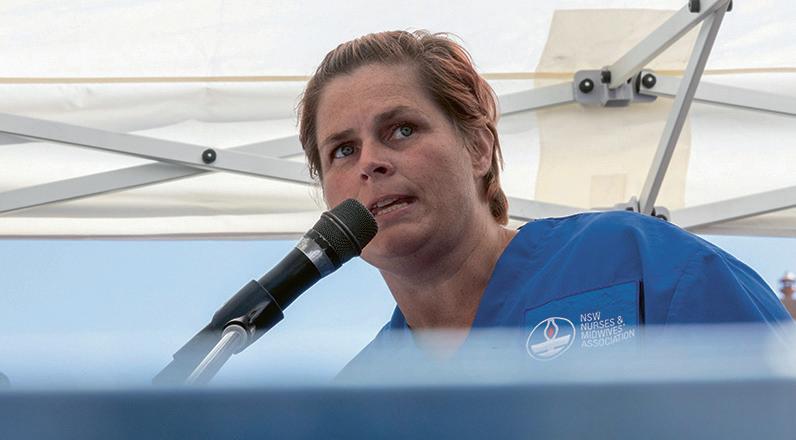
‘It turns out we've got a regional hospital with a metro car park.’
—Kelly Falconer, branch president
The Central Coast LHD later announced that fees would be $27.20 per week for full-time staff, $16.35 per week for part-time staff and $5.45 per day for casual parking.
In November, the NSWNMA’s Wyong branch wrote to the LHD Executive to warn that some hospital staff, including nurses, would “consider other options for work if the paid parking rolls out”.
The branch pointed out that the hospital had always offered free parking due to its “isolation from major train stations, lack of regular buses, and limited off-site parking” near the facility.
Paid parking would put a “huge financial strain” on the community, the branch said. n
20 | THE LAMP APRIL / MAY 2024 PARKING
KELLY FALCONER AND NSWNMA MEMBERS FROM WYONG HOSPITAL
John Hunter rallies against parking fees
More than 150 nurses and midwives rallied at the main entrance to Newcastle’s John Hunter Hospital in opposition to the reintroduction of paid parking. Also at the lunchtime rally were Labor MP Sonia Hornery, whose Wallsend electorate covers John Hunter, and Newcastle Lord Mayor, Nuatali Nelmes.
In a TV interview, Ms Hornery said John Hunter should be classified as a regional hospital and be exempt from parking fees, like other hospitals in the area such as Maitland, Swansea and Wyong.
‘Being in a regional area, our staff don’t all have access to public transport. It’s not a built-up urban area like the suburbs of Sydney.’
—Matthew Rispen, branch secretary
Parking fees are up to $20.91 a week, depending on income.
Matthew Rispen, secretary of the NSWNMA branch at John Hunter Hospital and John Hunter Children’s Hospital, said the government was wrong to compare John Hunter to other metropolitan hospitals, as the same public transport networks did not exist.
“It is grossly unfair to be forcing John Hunter staff to pay more than $1000 a year for parking,” he said.
“Public transport around John Hunter is virtually non-existent – especially for shift workers and people working on weekends.

“I live only a couple of kilometres from the hospital, but the buses stop at 8 pm, which forces people on afternoon or night shift to use private transport.
“Being in a regional area, our staff don’t all have access to public transport. It’s not a built-up urban area like the suburbs of Sydney.
“A lot of our people live at Branxton, Singleton, Cessnock and Maitland, where there is no public transport to John Hunter.”
150 STAFF PARKING SPACES CLOSED
John Hunter is undergoing major redevelopment, which is expected to continue for at least another 18 months and has led to the closure of about 150 staff parking spaces.
Matthew said staff working daytime or afternoon shifts and who have pre-paid for parking were forced to arrive at the car park up to an hour before their shift, to be sure of getting a spot.
“The alternatives would be to use the public car park, which costs $10 a day, or park some distance away on public streets.”
He said the reintroduction of parking fees had coincided with “a massive COVID surge, forcing us back to wearing N95 masks.”
“There has been an increase in COVID-related sick leave, meaning nurses and midwives are working short-staffed, or being asked to pick up overtime shifts.
“Paid parking means we are expected to return to pre-COVID times, financially, while still having to work with COVID-19, professionally.”
Matthew said the NSWNMA branch is concerned about the impact of paid parking on patients and visitors.
“We are a tertiary referral hospital –the only one outside Sydney – so not only do we have local patients, but we also have retrievals from all over northern NSW – from around Wyong up to the Queensland border.
“We also have the outpatient clinics – MRI, imaging, dialysis etc. – so people travel regularly for those services as well.
“Many of them are being hit hard by parking fees.” n
THE LAMP APRIL / MAY 2024 | 21 PARKING
NSWNMA MEMBERS AT JOHN HUNTER HOSPITAL
We’re
giving fees a good checkup. We’ve dropped 27 fees across our everyday banking products.


hpbank.com.au
27 fees were removed across our everyday banking products on 7 August 2023. Membership criteria, fees and T&Cs apply. T&Cs and the TMD are on hpbank.com.au. General advice only. Health Professionals Bank is a division of Teachers Mutual Bank Limited ABN 30 087 650 459 AFSL/Australian Credit Licence 238981
Discounted rate for NSWNMA members
Certificate IV in Training and Assessment (TAE40122)
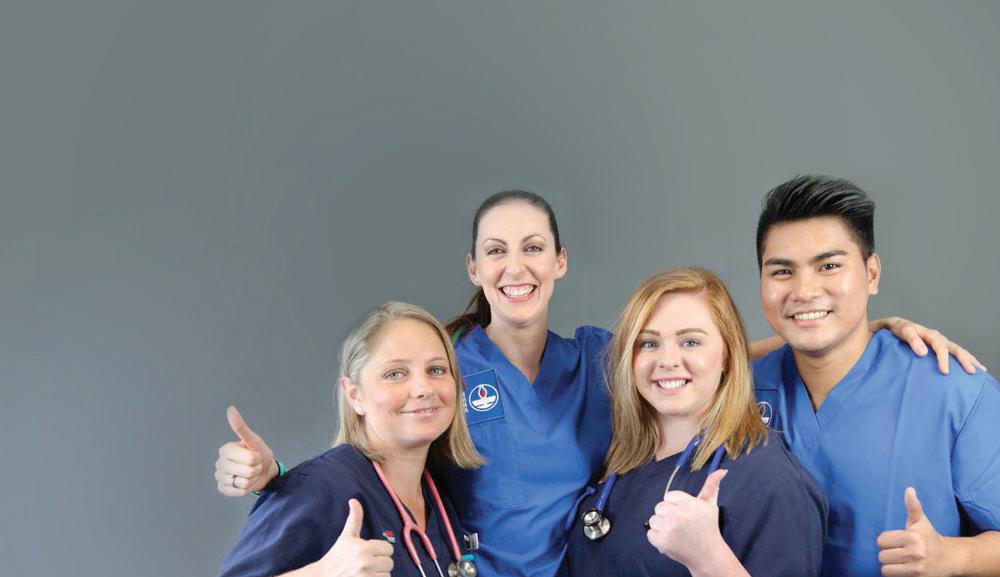
The joint venture between TAE Academy and NSWNMA will continue in 2024, allowing nurses and midwives of NSW to undertake the Certificate IV program with their peers.
This program is designed for vocationally qualified or skilled individuals who are seeking a career as a Trainer and/or Assessor in their field of expertise.
REGISTER YOUR INTEREST TODAY, VISIT taeacademy.edu.au/nswnma
Duration: 8 days over 9 months
Delivery Method:
online self-paced or virtual classroom (face-to-face)
Cost:
Virtual Face-to-Face program: $2,500 (discounted from $2950)
Online self-paced: $1995 (discounted from $2190)
Instalment payments is available
22 | THE LAMP APRIL / MAY 2024


Helping NSWNMA members plan for retirement
You spend your day caring for others, so let us care for your retirement nest egg. Whether retirement is 2 or 20 years away, Aware Super can help you maximise your savings and get retirement ready.
Our digital Retirement Guide has plenty of tips, advice and real member stories, plus a helpful checklist to guide you every step of the way.
With super advice and super returns Aware Super is super helpful.




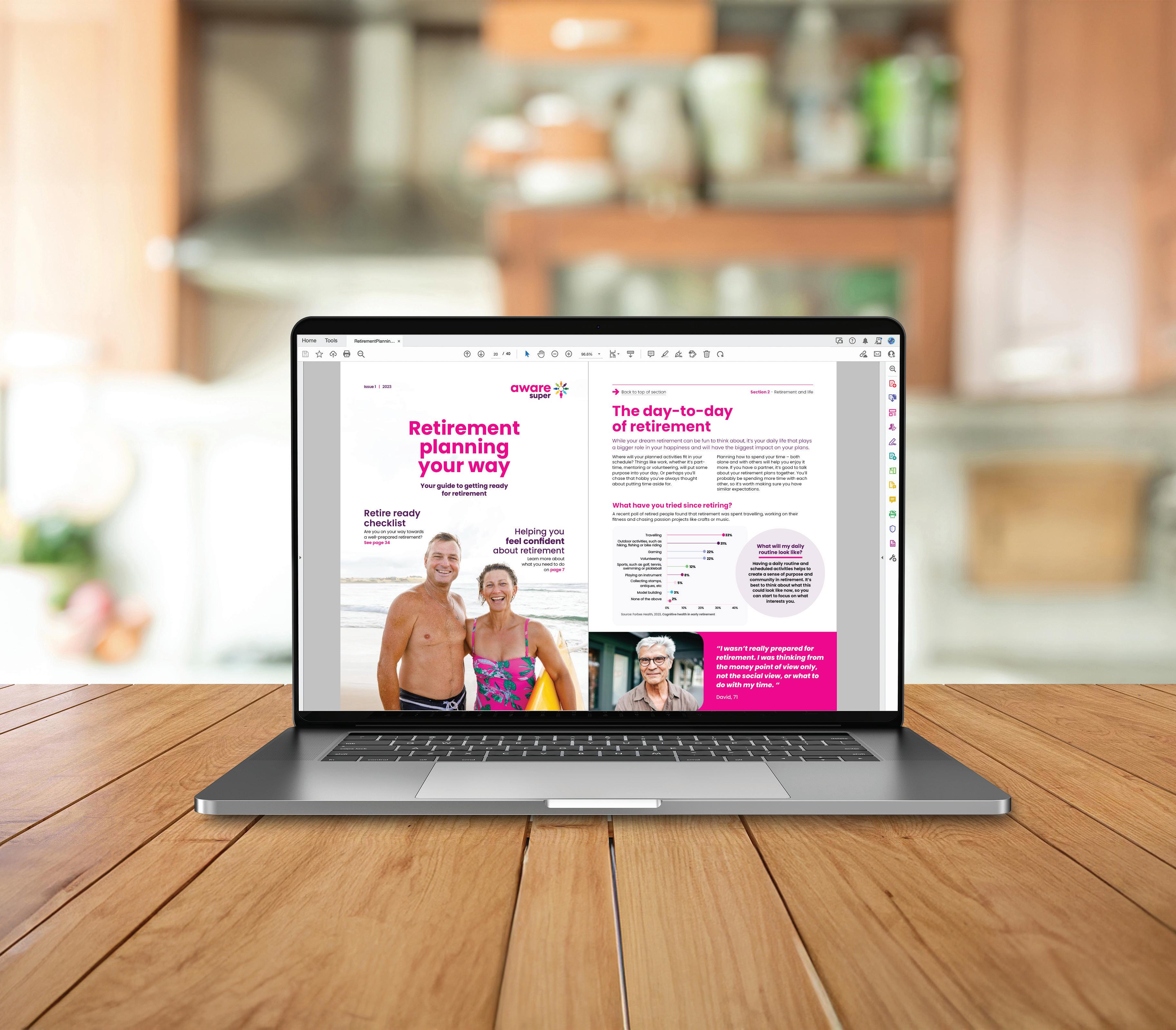
REGULARS
General Advice only. Consider the PDS and TMD at aware.com.au/pds before deciding. Issued by Aware Super Pty Ltd (ABN 11 118 202 672, AFSL 293340), trustee of Aware Super (ABN 53 226 460 365). Members can get advice about their Aware Super accounts at no extra cost, or comprehensive advice on their broader needs for a fee. Advice provided by Aware Financial Services Australia Limited (ABN 86 003 742 756, AFSL 238430) wholly owned by Aware Super. AS103 02/24 aware.com.au/retirementguide





Check out NSWNMA merchandise at Member Central, sold at cost to members










over to receive FREE POSTAGE$10postage for orders under$60









SCHOLARSHIPS FOR THE ACADEMIC YEAR 2025
Applications for the Edith Cavell Trust Scholarships are being accepted from 1 May 2024, closing 31 July 2024, for studies being undertaken in the academic year 2025.
Members or Associate Members of the NSW Nurses and Midwives’ Association or the Australian Nursing and Midwifery Federation (NSW Branch) are invited to apply.
All grants, awards or loans shall be made to financially assist nurses, midwives, assistants in nursing, assistants in midwifery (including students of those disciplines), and accredited nursing or midwifery organisations, schools and faculties in the furtherance of:
(i) accredited nursing or midwifery studies;
(ii) such academic research programs as are approved by the Trustees in the theory or practice of nursing or midwifery work; or
(iii) clinical nursing education programs at graduate, post-graduate and continuing education professional development level; in accordance with a number of categories.
Full details of the scholarship categories, how to apply and to obtain the official application form is available from the NSWNMA website. Prior to applying, please ensure you have read the Edith Cavell Trust Scholarship Rules. www.nswnma.asn.au
ON
further
O’Dea
1300 367 962 E edithcavell@nswnma.asn.au APPLICATIONS CLOSE 5PM ON 31 JULY 2024
CLICK
‘EDUCATION’ For
information contact: Scholarship Coordinator, The Edith Cavell Trust 50
Avenue, Waterloo NSW 2017 T
Union
Merchandise half.indd 1 25/3/2024 4:14 pm
Proud MEMBER CENTRAL LOGIN @ WWW.NSWNMA.ASN.AU ORDER VIA Spend $60 &









General info only. Consider the T&Cs before deciding to acquire this product. Fees & charges apply. ME Bank is a division of Bank of Queensland Limited. Open a SpendME everyday account today. ME Bank

Branch Beat
Branch Beat with NSWNMA Assistant General Secretary Michael Whaites
We all know the COVID pandemic left the nursing workforce exhausted and depleted. The virus persists as a clinical challenge of course but so do the consequences on nurses’ health and wellbeing. This clearly motivates us in our campaign for ratios and safer staffing. But there are also already-existing conditions in our PHS award that help create a workplace environment that is conducive to safe patient care and better work/life balance for nurses and midwives.
The right to 12-hour shifts is such a condition and one we need to defend.
Nurses in the Cardiothoracic ICU at Westmead Hospital and in the Paediatrics Unit at Blacktown Hospital were recently confronted by a management attempt to remove 12-hour shifts from their units. This led to a disciplined local campaign by members to defend their award right.
Nurses at both hospitals made an overwhelming case for the retention of 12-hour shifts with a systematic analysis proving their effectiveness and with commendable cooperation and unity that led to the LHD changing their position.
The actions of NSWNMA members at Westmead and Blacktown, standing together to enforce their Award entitlements, demonstrates the collective power of our union, and the importance of knowing your award entitlements.
Nurses defend their work/ life balance
Nurses at the Cardiothoracic ICU at Westmead Hospital have won the right to continue working 12-hour shifts after management tried to return to a roster pattern of shorter but more frequent shifts.
Many nurses in the ICU unit have been working three consecutive days of 12-hour shifts, followed by four days off. The roster was introduced at the end of 2022 at the request of staff who felt burnt out two years into the pandemic, says Carl John Martin, an RN in the unit and a NSWNMA member.
“Staff were fatigued,” Martin says. “We were so hit with COVID we were exhausted but we were not able to get leave. The trial of 12-hour shifts helped us get back that work life balance.”
“The longer shifts have also improved continuity of patient care,” says Martin. “Over 12 hours, we are able
to build a relationship and rapport with patients and families.”
“It also helped in terms of people being on the floor,” he says. “Team leaders now have more time to focus on patient safety and patient care, because the end of each shift requires documentation, so there is just less of that now.”
Nurses at both hospitals made an overwhelming case for the retention of 12-hour shifts with a systematic analysis proving their effectiveness and with commendable cooperation and unity that led to the LHD changing their position.
Martin says the four days off to rest and recover had had “a big impact for nurses’ lifestyle and exhaustion levels”.
The move to working a 12-hour shift pattern was voluntary. Nurses who try the roster and find that it doesn’t work for them can go back to an 8-hour roster.
Nurses working a 12-hour shift roster also do one 8-hour shift a month to make up the hours they would have worked on their previous roster. Nurses choosing the longer shift pattern need to demonstrate a level of seniority and competency with complex care patients.
Roster change without consultation
“We had a heads up that management were going to take away the 12-hour shifts because of their concerns about fatigue,” Martin says. The change was put forward without consultation, which was a breach of the award.

COVER STORY
BRANCH BEAT
WESTMEAD HEALTH PRECINCT,
SOURCE:
HEALTH 26 | THE LAMP APRIL / MAY 2024
IMAGE
NSW
‘The roster was introduced at the end of 2022 at the request of staff who felt burnt out two years into the pandemic’
— Carl John Martin, RN

The Public Health System Nurses’ and Midwives’ (state) Award requires consultation before any decisions, and a minimum of three months’ notice of changes.
Branch members organised to save the longer shift pattern, which more than half of the staff had taken up without a negative impact on their work.
Members used SurveyMonkey to gather data to show the roster was working. They discussed organising strategies on a WhatsApp group and in Teams meetings. And they co-ordinated with NSWNMA members from the Blacktown birthing unit who had also been told by management they would lose their right to 12-hour shifts.
“We definitely had unity among members so that we could fight for what we think is right for our area,” Martin says.
“We definitely had unity among members so that we could fight for what we think is right for our area.”
— Carl John Martin, RN
Nurses in the unit put documentation they had collected to management to show that the 12-hour shifts were working for patients and was also having a positive impact on nurses’ work life balance.
Management conceded they could not provide evidence as to why 12-hour shifts may no longer be appropriate.
“Our organiser did an amazing job in supporting the staff. She was always there giving us updates and she was
always open to talking. That was really important,” says Martin.
The success comes on top of members at the birthing unit at Westmead who also organised to retain 12-hour shifts after management failed to conduct a review of the roster arrangement before opting to implement a change to 8-hour shifts.
The Industrial Relations Commission (IRC) of NSW, reinstated 12-hour shifts in the Westmead birthing unit from 21 January 2024. The Commission also ordered meaningful consultation with all Westmead birthing unit staff to occur. n
COVER STORY
CARL JOHN MARTIN, RN
BRANCH BEAT THE LAMP APRIL / MAY 2024 | 27
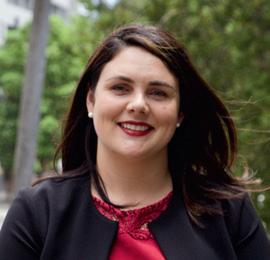
Ask Shaye
Incremental pay progression
I am a registered nurse working part time in a public hospital for a little over three years. I have noticed I am still being paid as a registered nurse year two and have not progressed to the year three rate.
For nurses in the Public Health System, incremental salary progression is calculated on the actual hours worked, which includes any paid leave taken. As you are working less than a 38-hour week, it will take longer than a calendar year to progress to year three rate.
Rural Health Workforce Incentive repayments
If I move from a Rural Health Workforce Incentive position to a non-incentivised position, is it possible I will have repayment obligations?
Yes. If a health worker accepts and commences an incentivised appointment and is in receipt of incentive payments and relocation expenses, and then leaves the role within 18 months of commencement, they will have a repayment obligation calculated on length of time served in the role. Further details can be found in the NSW Health Rural Health Workforce Incentive Scheme Policy Directive PD2022_025.
My break, my time
Can my employer tell me what to do during my unpaid lunch break?
Generally, no. Unpaid breaks are not considered to be work time, and hence directions from your employer regarding what you can do during that time
When it comes to your rights and entitlements at work, NSWNMA General Secretary Shaye Candish has the answers.
will not be reasonable. In some circumstances, an employer can direct you to be on call during a meal break, but there should be an allowance or payment for this under the award or agreement.
Rights around fact finding
It has been alleged I have made a medication error in my facility. I have been advised that the matter will be investigated, and I have a meeting with my manager in the next few days. What are my rights in this situation?
Responding to an allegation at work can be very stressful, regardless whether you were at fault. Fortunately, you do not need to face this alone. As a member, NSWNMA can assist you.
You have rights to receive the following:
• Written notice of the meeting, including sufficient details of the complaint or allegation in writing, to enable you to respond.
• Access to the evidence against you or relevant documentation, with permission of your employer.
• The right to seek advice from your union and to have a support person for the meeting.
• A fair and reasonable opportunity to provide a response to the allegation.
Please contact NSWNMA and speak with one of our officers as soon as possible for assistance. We can support you throughout the process, but our early involvement is critical.
Annual leave used to maintain contracted hours
I work in a public hospital and wasn’t rostered my usual hours. One shift was then paid as annual leave, to maintain my contracted hours without my knowledge. Can they do that?
In short, no. You should be rostered your contracted hours, and any shortfall cannot be arbitrarily made up by using your annual leave. Furthermore, Clause 30(vi) of the Public Health System Nurses’ and Midwives’ (State) Award, makes clear that the use of single annual leave days can only occur if “convenient to both the employer and the employee ”, i.e., by mutual agreement.
Pre-term parental leave
I work in a public hospital. One of my colleagues said something about extra leave if I give birth early. Can you fill me in?
Additional leave is now available in such a situation for public sector workers. Where an employee gives birth to a preterm child, the parent with caring responsibility is entitled to paid special pre-term parental leave from the date of birth up to the end of 36 weeks. At the commencement of 37 weeks, paid parental leave then kicks in. Check out Section 5.15.2 of PD2023_006 (Leave Matters for the NSW Health Service) for the specifics.
28 | THE LAMP APRIL / MAY 2024
YOUR RIGHTS
Flexible working
I’ve recently had some changes to my family circumstances and need to be more available to look after a young child. I need to reduce my hours, but I don’t want to give up my permanent fulltime job forever.
Changing family and caring responsibilities affect all of us and the NSWNMA is absolutely committed to advocating for better levels of job control for nurses and midwives in all sectors.
For workers outside of NSW Health, the federal government has strengthened your right
to ask for a flexible work arrangement where you ask for a temporary change to your working hours or conditions (such as reduced days/hours, removal from certain shifts, or changes to your place of work), to suit your caring needs. Your workplace should have an approved form and policy for a flexible working arrangement. To qualify, you need to have worked with your employer for 12 months and be able to demonstrate you care for a child under school age, or a person with disability or special needs.
If you work in the public sector in NSW, you have a right to ask for a temporary individual roster

arrangement, or TIRA, for a temporary change to your hours of work or to the shifts you work, in order to adapt to childcare or other caring responsibilities for a period of time.
In both cases, the employer can only refuse your request if they have ‘reasonable business grounds’ to do so.
If you are having difficulty getting a flexible work arrangement or TIRA approved, contact the Association office for assistance.

THE LAMP APRIL / MAY 2024 | 29
Out now! Listen on NSWNMA’s podcast Keith’s Closet with Mental Health Nurse Keith Donnelly Summer Series Nursing during an inland tsunami with Grace Langlands
PROFESSIONAL EDUCATION CALENDAR
Register via nswnma.info/education
Go online to register for these education sessions and our free range of live webinars. Use the dropdown search fields to search by topic (Professional Courses, WHS Courses and Webinars), suburb or month.
Waterloo
Aged Care Seminar
Fri 12 Apr, 9am-4pm, 6 CPD Hrs
Members $75 /non-members $150
Effective and Timely Management of the Deteriorating Older Person
Fri 3 May, 9am-3pm, 5 CPD Hrs
Members $95 /non-members $190
Understanding and Caring for People with Mental Health Conditions
Thu 9 May, 9.am-4pm, 6 CPD Hrs
Members $95 /non-members $190
Midwifery Seminar
Fri 10 May, 9am-4pm, 6 CPD Hrs
Members $75 /non-members $150
Law, Ethics and Professional Standards in nursing and midwifery
Thu 23 May, 9am-4pm, 6 CPD Hrs
Members $95 /non-members $190
Mental Health Nursing
Refresher Course
Wed 29 May, 9am-4pm, 6 CPD Hrs
Members $95 /non-members $190
Medications: How we do it better
Thu 6 Jun, 9am-4pm, 6 CPD Hrs
Members $95 /non-members $190
Bega
The Deteriorating Patient
Tue 7 May, 9am-4pm, 6 CPD Hrs
Members $95 /non-members $190
Understanding your annual CPD obligations
Wed 8 May, 9am-1pm, 3 ½ CPD Hrs
Members $50 /non-members $100
Blacktown
Clinical Communication and Documentation
Thu 18 Apr, 9am-4pm, 6 CPD Hrs
Members $95 /non-members $190
APRIL–JUNE 2024

Newcastle
Providing safe and quality care in a holistic framework
Wed 3 Apr, 9am-3pm, 5 CPD Hrs
Members $95 /non-members $190
Penrith
Dementia Management Training
Thu 30 May, 9am-5pm, 7 CPD Hrs
Members $95 /non-members $190
Wollongong
Wound Care: Leg Ulcers and Compression Dressing
2-day course: Thu 9 and Fri 10 May, 9am-4.30pm, 12
CPD Hrs
Members $190/nonmembers $380
NSWNMA webinars
The NSWNMA is presenting a range of free live webinars throughout 2024 covering a range of topics such as:
Work Health & Safety series
Nurse & Midwife Manager series
Medications
Communication & Documentation
Professional Obligations
Law & Ethics … and more!
Go online to register for these free webinars. Use the dropdown search field to search by topic: webinars.
30 | THE LAMP APRIL / MAY 2024
UPCOMING SEMINARS
LOCATION
NSWNMA, 50 O’Dea Avenue, Waterloo NSW 2017
COST
Per seminar: members $75 / non-members $150 Lunch and refreshments are provided and there will be time throughout the day to network with colleagues.
Aged Care Seminar
Friday 12 April, 9am-4pm – 6 CPD Hrs.
Hear from a range of speakers, network with colleagues and share experiences across the aged care sector. For RNs, ENs and AINs in residential, community and hospital aged care settings, across private and public sectors, or anyone with an interest in the aged care sector in NSW.
PROGRAM:
• Keeping on the weight – Preventing weight loss in older people and enhancing quality of life
• Engaging older people in service delivery and navigating complaints
• Sexuality and Ageing with Dementia
• Why Work Health and Safety Laws Work for Members: Four fundamentals on what WHS laws mean for members
Further topics are under development and will be published as they are confirmed.
Midwifery Seminar: Birth Trauma
Friday 10 May, 9am-4pm – 6 CPD Hours
REGISTER NOW


REGISTER NOW
Midwives and Assistants in Midwifery – join the NSWNMA for an inspiring and educational day.
PROGRAM:
• Alison Weatherstone, Chief Midwife, Australian College of Midwives
• Birth trauma and Aboriginal and Torres Strait Islander families with Mel Briggs
• Debriefing for midwives
• The consumer perspective on birth trauma
• Birth trauma panel discussion
Further topics are under development and will be published as they are confirmed.
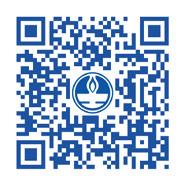
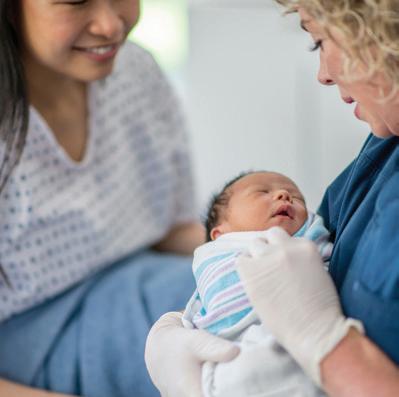
THE LAMP APRIL / MAY 2024 | 31
Recruit a new member and go into the draw to win a $1,500 TRAVLECT VOUCHER

The NSWNMA has partnered with Travlect to reward you!
Recruit a new member and you could win a $1,500 travel voucher that can be used on over 2 million hotels and resorts worldwide.
Every member you sign up over the year gives you an entry in the draw!
Travlect provides all NSWNMA members with access to the cheapest accommodation prices anywhere on the web.
Visit https://travlect.com/register/nswnma
The NSWNMA will cover return flights for two from Sydney to the value of $3,000.




RECRUITERS NOTE: Join online at www.nswnma.asn.au
If you refer a member to join online, make sure you ask them to put your name and workplace on the online application form, so you will be entered in the draw.
THE 2023 – 2024 NSWNMA MEMBER RECRUITMENT PRIZE
Conditions apply: Travlect Voucher can only be used on the Travlect platform for the purchase of Travlect Exclusive Packages & Deals with a minimum spend of $1,000; only one Travlect Voucher can be used per purchase; Travlect Voucher can not be regifted or passed to any other person including for charitable purposes; Voucher is not transferrable nor redeemable for cash & cannot be used in conjunction with any other offers; Travlect Voucher is valid until 30 June 2025. PRIZE DRAWN 1 JULY 2024



Our collective strength is in our numbers – the larger the membership, the louder our voice. You can help build the NSWNMA by recruiting a member.










Once you have recruited 4 new members you will be entitled to an $80 e-gift card. For every new member you sign up after that, you will receive a $20 e-gift card.
Digital gift cards are emailed to recruiters at the end of financial year and valid for 3 years. Gift cards are not deemed to be income for the purposes of taxation.
NSWNMA MEMBERS’ REWARD SYSTEM *Conditions
To participate in this
must be
of the NSWNMA (Associate Members are not eligible to enter). Every new member’s application form must be accompanied by some form of payment – cheque, money order, direct debit, credit card authorisation form. Recruiter’s name and membership number must be written in the space provided on each new member’s application form. New recruits must remain as financial members for at least 3 months before being recognised by the scheme.
THE
apply.
recruitment incentive scheme, you
a financial member
THE SCHEME
HOW
WORKS
Recruitment
E-GIFTE-GIFT CARD $20 ICC,
• 7–9 August 2024 79 th Annual Conference Save the dates! COUNTS TOWARDS CPD HOURS
for
registration NSW NURSES & MIDWIVES’ PROFESSIONAL DAY Wednesday 7 August 2024 ANNUAL CONFERENCE Thursday 8 August – Friday 9 August 2024
incentive scheme
Sydney
Check out the next Lamp issue
Professional Day

Free Membership to Travlect with access to the cheapest accommodation prices anywhere on the web plus over 2 million hotels and resorts worldwide. ct’s Worldwide Travel Club
What do you get with your membership:
On registration as a member to the Travlect platform receive a $200 Travlect Voucher
Access to Travlect Exclusive Packages, plus on going specials and discounts throughout your membership
On your annual anniversary of registering as a member on the Travlect platform receive a $200 Travlect Voucher
https://travlect.com/register/nswnma
Join Now
INSURANCE BENEFITS FOR NSWNMA MEMBERS

The NSWNMA is committed to protecting the interests of nurses and midwives by purchasing a range of insurances to cover members.
Journey Accident Insurance provides cover for members who are injured as a result of an accident while travelling between their home and their regular place of employment.
Professional Indemnity Insurance* provides legal representation and protection for members when required.
Make sure your membership remains financial at all times in order to access the insurance and other benefits provided by the NSWNMA.
www.nswnma .asn.au
* The Professional Indemnity Insurance policy also includes Public and Products Liability cover.
UNSURE IF YOUR MEMBERSHIP IS FINANCIAL? Ring and check today on 8595 1234 (metro) or 1300 367 962 (rural) Change your payment information online at www.nswnma.asn.au
It’s easy!
it
Insurance protection when you need
most
AUSTRALIA

Aussie vice
Australia’s latest household survey reveals that we are smoking less, taking more drugs, and still binge drinking.
According to the Household, Income, and Labour Dynamics in Australia (HILDA) survey, smoking is declining in Australia, but young people are more likely to vape.
There has been substantial progress in reducing smoking rates since 2001, when 25 per cent of males and 20 per cent of females aged 15 and over reported being smokers. In 2021, these rates had dropped to 16 per cent for males and 12 per cent for females.
This likely reflects the effects of tobacco control measures, as well as increased public awareness of the harmful health effects of smoking.
Declines have been biggest for young people, which reflects the fact it is easier to prevent the take-up of smoking than it is to get smokers to quit.
Risky drinking, defined as usually consuming five or more standard drinks on each occasion, is relatively common, applying to over 20 per cent of males and about 10 per cent of females who ever drink alcohol.
After rising slightly between 2003 and 2009, there has since been a small decline in this measure of risky drinking for males. There has been little change in this measure for females.
The HILDA survey shows use of illicit drugs, such as marijuana, methamphetamine and cocaine, increased between 2017 and 2021, with annual use increasing from 15.7 per cent to 17.6 per cent for males, and from 8.6 per cent to 11 per cent for females.
For more information
Read the HILDA survey: https://melbourneinstitute.unimelb.edu.au/hilda
WORLD
Global cancer cases to rise by more than 75% by 2050: WHO
The impact will be felt disproportionately in low-income countries.
The WHO’s cancer arm, the International Agency for Research on Cancer (IARC), estimates there will be more than 35 million new cancer cases by 2050, an increase of 77 per cent from 2022 levels, and that deaths will have nearly doubled since 2012 to more than 18 million.
The IARC said tobacco use, alcohol consumption, and obesity were key factors behind the increasing incidence of cancer, as well as population ageing and growth.
Lower-income countries will experience the biggest proportional increases in cases. Cancer mortality in the latter countries is projected to almost double.
“The impact of this increase will not be felt evenly across countries,” said Dr Freddie Bray, head of the IARC’s cancer surveillance branch. “Those who have the fewest resources to manage their cancer burdens will bear the brunt of the global cancer burden.”
According to the IARC, 10 types of cancer accounted for about twothirds of new cases and deaths globally in 2022.
Lung cancer is the most commonly diagnosed cancer worldwide, accounting for 12.4 per cent of new cases and 18.7 per cent of deaths. Female breast cancer is the second most common form. Other major causes of death include bowel, liver and stomach cancer.
Inequalities are particularly pointed in breast cancer. Women in lower-income countries are 50 per cent less likely to be diagnosed than women in higherincome countries.
Cancer mortality in low-income countries is projected to almost double.
36 | THE LAMP APRIL / MAY 2024
NEWS IN BRIEF
AUSTRALIA
NSWNMA welcomes new graduates for 2024
The Association welcomes the 3400 new nurses and midwives entering our workforce this year, after completing their university studies.
Given the staffing pressures nurses and midwives are continuing to face, this is a critical boost across our hospitals and health services.
NSWNMA General Secretary, Shaye Candish, said the graduates will help ease shortages being felt right across the state.

“Our graduate nurses and midwives are the future of health care in NSW. We must ensure they are well supported through better pay and working conditions, including safe nurse-to-patient ratios, to ensure their long-term success in our hospitals and longevity in their careers,” Shaye said.
“There are predictions that by 2025, Australia will have a nursing shortfall of 85,000 nurses, based on health needs and the ageing workforce. These new graduates are more important than ever to enhancing the nursing and midwifery workforce here in NSW.”
NSWNMA Assistant General Secretary, Michael Whaites, said ensuring graduate nurses and midwives have the right support is critical.
“The need for more clinical nurse and midwife educators to support, train and mentor new nurses and midwives has never been greater, and the government must invest in this critical support if they are to properly address the issues of retention of this workforce,” Michael said.
“We look forward to working with these new nurses and midwives throughout their career in the public health system.”
AUSTRALIA
Feminist narratives hijacked to market medical tests
An analysis published in the British Medical Journal finds messages around empowerment and women’s rights are being used inappropriately to market products in women’s health.
Corporations co-opt feminist messages around women’s wellbeing to promote useless health tests and treatments, an analysis by Australian researchers has found.
Their study describes how these marketing messages echo those used to promote harmful products like tobacco and alcohol to women in the 1980s.
They argue that women are being potentially exposed to harms such as overdiagnosis and unnecessary treatment through messages encouraging them to take charge of their health.
The analysis uses the example of some menstrual tracking apps that claim to diagnose reproductive conditions such as polycystic ovary syndrome.
The researchers also highlight the marketing of the AMH test, which measures levels of anti-Müllerian hormone in the blood. The hormone is linked to the number of eggs in a woman’s ovaries, but the test cannot reliably predict a woman’s chances of conceiving.
Despite this, many fertility clinics and online companies market and sell the test as a fertility tool, using phrases such as “information is power” and “take charge of your fertility”.
A senior author of the paper, Dr Brooke Nickel, said the responsibility should not be placed on individual women to navigate these health messages.
“The responsibility should largely be placed on companies that market these health interventions to be clearer about their limitations,” she said.

“These new graduates are more important than ever to enhancing the nursing and midwifery workforce here in NSW.” — NSWNMA General Secretary, Shaye Candish
These marketing messages echo those used to promote harmful products like tobacco and alcohol to women in the 1980s.
THE LAMP APRIL / MAY 2024 | 37
NEWS IN BRIEF
WORLD
COVID hasn’t gone away
Now in its fifth year, COVID continues to have negative effects on individuals, health services and society at large.

In May 2023, the World Health Organization (WHO) declared COVID was no longer a public health emergency of international concern. For many, this signalled the pandemic was over.
But the virus continues to infect millions of people, and the WHO recognises COVID as an ongoing pandemic.
In Australia, more than 50,000 infections have been reported in the first months of 2024. This is likely to be a significant underestimate, as we are testing much less than we used to.
In New South Wales, for example, laboratory-confirmed cases are trending downwards, while wastewater testing suggests COVID prevalence remains high.
As of 1 February, there were 287 outbreaks in residential aged care homes and people are still dying from the virus.
In Australia, more than 50,000 infections have been reported in the first months of 2024.
Several nursing and other health academics, writing in the online journal The Conversation, argue that reinstating easy access to rapid antigen and PCR testing would enable people to better manage their illness, and provide a clearer picture for health authorities.
As Board members of the Australasian College for Infection Prevention and Control, they call for “ongoing infection prevention and control strategies in Australia. These include supporting people to access vaccination and testing, and cleaner air in shared indoor spaces.”
Currently there is no Australian Technical Advisory Group on Immunisation (ATAGI) recommendation that people at greater occupational risk of catching COVID, such as healthcare workers, childcare workers or emergency and essential services workers, receive another vaccination at this stage.
AUSTRALIA
Union bodies call for action on Gaza
The ACTU and Global Unions call for unified action to bring about an urgent and lasting ceasefire in Gaza.
The ACTU Executive has supported the call from Global Unions for unified action following an International Court of Justice (ICJ) ruling on the Gaza genocide case.
The ACTU urged Israel “to comply with the ICJ’s Order to take immediate steps to prevent acts of genocide, punish incitement to genocide, and facilitate the provision of basic services and humanitarian assistance to Palestinians in Gaza”.
“There must be an immediate de-escalation and ceasefire, and the creation of humanitarian corridors to allow humanitarian aid into Palestine unimpeded,” the ACTU said.
The international union organisation Global Unions has emphasised the gravity of the situation.
“Our members in Gaza are being killed while they go about their work, including teachers, healthcare workers, transport workers, journalists, UN staff, international aid workers and many others,” it said.
The ACTU noted the Australian Government had suspended funding to the UN Relief and Works Agency for Palestine Refugees in the Near East (UNRWA), despite UNRWA having suspended nine of its employees accused by the Israeli government of involvement in the Hamas attack on 7 October. The ACTU called on the government to urgently reinstate the funding.
“The cessation of funding to UNRWA – the main humanitarian actor in Gaza that provides critical support to Palestinians – has serious ramifications for humanitarian operations in Gaza.”

“Our members in Gaza are being killed while they go about their work.”
38 | THE LAMP APRIL / MAY 2024 NEWS IN BRIEF
AUSTRALIA
ANMF launches Nurses Award work value case
The ANMF has applied to the Fair Work Commission (FWC) for an increase in award wages for frontline nurses, midwives, and assistants in nursing (AiNs) – by up to 35 per cent.
The Application seeks to vary the Nurses Award and is made on the basis that the work of nurses and midwives has never been properly valued.
ANMF Federal Secretary, Annie Butler, said that, if successful, the Application will ensure that the recognition of work value given to nurses and AiNs in the Aged Care Work value case, will be extended to all award-covered nurses, midwives and AiNs.
“Award rates are set too low, stemming from the historical, gender-based undervaluation of nursing and midwifery care work.”
ANMF Federal Secretary Annie Butler
“It’s only fair that nurses, midwives and AiNs covered by the national award, get recognition for their demanding work, regardless of the healthcare setting,” Ms Butler said.
“We contend that award rates are set too low, stemming from the historical, gender-based undervaluation of nursing and midwifery care work.
“On top of that, the nature of their work has changed dramatically in the last decades; it’s more complex and the settings in which they work, more varied.
“The training, skill and responsibility required to deliver that quality care has grown commensurately with the ever-changing demands of the healthcare system. The ANMF says it is time the work of nurses, midwives and AiNs is properly recognised and valued. This Application will instigate that change.”

Children living near green spaces ‘have stronger bones’
The link between green spaces and stronger bones is likely to result from higher levels of physical activity in children who live near parks.
A study published in the journal JAMA Network has found that children with more green space near their homes have significantly stronger bones, potentially leading to lifelong health benefits.
Scientists found that children living in places with 20–25 per cent more natural areas had increased bone strength that was equivalent to half a year’s natural growth.
The study, the first of its kind, also found that the risk of having very low bone density was about 65 per cent lower for these children.
Bone strength grows in childhood and adolescence, before plateauing until about the age of 50, and then declining. Increasing the size and accessibility of green spaces for children could therefore prevent fractures and osteoporosis in older people, the researchers said.
The link between green spaces and stronger bones is likely to result from higher levels of physical activity in children who live near parks, as this spurs bone growth.
“The stronger the bone mass is during childhood, the more capacity you have for later in life,” said Prof. Tim Nawrot, at Hasselt University in Belgium, who was part of the study team.
Previous studies have also discovered that access to green spaces has multiple benefits for child development, including a lower risk of being overweight, lower blood pressure, higher IQs, and better mental health and emotional wellbeing.
‘The stronger the bone mass is during childhood, the more capacity you have for later in life.’
— Prof. Tim Nawrot
CROSSWORD SOLUTION

THE LAMP APRIL / MAY 2024 | 39 NEWS IN BRIEF
WORLD
Professional Perspectives
I have worked part time over the last few years and have just retired from my employment as a registered nurse. Should I renew my registration next year?
While we can’t advise yes or no, it is important to consider your employment plans in the future and if you would like to return to the workforce as a registered nurse.
If you are unsure whether you would like to take up casual or part-time work in the next few months or years, you may wish to renew your registration. To renew your registration, you will need to meet the recency of practice registration standard (i.e. have practiced 450 hours within the last five years).
If you do not wish to return to the workforce, then you may consider not renewing your registration, or choose to hold a non-practising registration. The non-practising registration type is suitable for individuals who stop all nursing/ midwifery practice, but want to retain a protected nursing/ midwifery title.
Please contact the Association for further individual advice around your registration renewal as you transition into retirement. There was an incident at work where a patient came in with cuts and wounds. During the assessment, the patient disclosed the type of weapon used to inflict the wounds and who the attacker may have been. The police have attended and asked me to provide a statement. What do I do? What will happen next? Can the NSWNMA help?
If you are ever asked to provide a statement or be a witness in a criminal case, please call the NSWNMA to speak to one of the
The Association’s professional team answer your questions about professional issues, your rights and responsibilities.
legal officers for information and advice so you can better understand the process and what might happen next.
A statement is a formal written document outlining what you saw, heard, and did. It starts by requiring that you tell the truth in the statement, and your signature before a witness.
Often the police will ask you to give them a statement in the immediate aftermath of an incident. Before you provide a statement, you are entitled to take the time you need, including to seek advice or review any documents you consider will assist you with your recollection.
You cannot be forced to provide a statement, or forced to sign one you don’t agree with.
Always be professional and polite to the police and let them know you wish to seek advice. You are entitled to seek independent legal advice from the NSWNMA before you provide a statement.
I am an overseas qualified nurse; how can I gain registration in Australia?
Information about eligibility and the assessment process for internationally qualified nurses and midwives (IQNM) can be found on the Nursing and Midwifery Board (NMBA) website https://www. nursingmidwiferyboard.gov.au/ Accreditation/IQNM.aspx.
There are different requirements depending on the country in which you gained your qualification, as well as English language requirements and visa considerations.
Once you do gain registration and start working in Australia, we recommend you join the relevant branch of the ANMF (the union for nurses and midwives) in the state or territory you
are working. This will ensure your employment rights are protected and you have access to ongoing education, as well as professional, work health and safety, and legal support and advice.
Is it illegal for an employer to put an RN in charge of a maternity ward?
There is no legal requirement that specifies the qualifications people need to be in charge of a maternity unit. Nurses and midwives have professional obligations that extend beyond their employment, and practising within their own individual scope of practice is one such obligation. While those obligations are the responsibility of individual nurses and midwives, it is unlawful for an employer to direct or incite a breach of those obligations.
I have recently been charged with a criminal offence, and I am concerned that this will impact on my registration and ability to practice – what should I do?
If you are charged with an offence, we recommend you contact the NSWNMA as soon as possible for individual advice from a Legal Officer. Depending on your personal circumstances and the offence you have been charged with, you may be required to inform the Nursing and Midwifery Board of Australia (NMBA) before renewal. At renewal, all changes to criminal history must be declared.
40 | THE LAMP APRIL / MAY 2024
YOUR RIGHTS
From residential aged care worker to dementia care support worker: a qualitative study of senior aged care staff perceptions of the role
E Lea, A Robinson, K Doherty, This study investigated how senior residential aged care staff perceived the purpose, function, impact and challenges of implementing a new role in their organisation for an unregistered care worker with a Bachelor of Dementia Care: the Dementia Care Support Worker. The role was piloted over two years in an Australian organisation with three aged care facilities, to examine its potential to address gaps in service provision for people with dementia.
A qualitative descriptive approach was taken to explore senior staff members’ perceptions of the role at two time points.
Three themes reflected senior staff members’ expectations of the role: (1) Enhancing staff and management knowledge about dementia and dementia care practices; (2) Facilitating changes to improve care for residents living with dementia; and (3) Educating and supporting residents’ families.
Improving dementia knowledge of care staff is an essential first step in driving care-quality improvements. The Dementia Care Support Worker role for care workers has the potential to address knowledge needs and support improved care practices.
https://www.ajan.com.au/index.php/ AJAN/article/view/875/199
Preventing care factor zero: improving patient outcomes, and nursing satisfaction and retention, through facilitation of compassionate, person-centred care
A Waird
A discussion of empathy and compassion, including patient
and nursing perspectives, barriers and enablers, and the potential for development, teachability, and sustainability of empathy and compassion in nursing. Whilst compassion and empathy have long been recognised as prerequisites for the provision of effective nursing care, there are many interpretations of their meanings, and the two are often transposed. The presence or absence of compassionate and empathetic nursing care has multiple positive and negative effects on nursing satisfaction and retention, and also on patients’ experiences and health outcomes.
Empathy is a core component of compassion. Compassion and empathy may be innate characteristics, but they can also be taught and fostered through education both pre- and post-graduation. Pre- and postgraduate nurses, in particular, should have access to targeted education and support from peers, senior nurses and educators, especially positive role modelling. For all nurses to be able to provide compassionate care, it is important that organisations’ leadership and management recognises the time required to do so, without pressure to complete clinical tasks. Indisputably, the prevailing clinical implication is that reducing staffing shortfalls and excessive workloads is essential to foster a compassionate environment.
https://www.ajan.com.au/index.php/ AJAN/article/view/1073/201
“I always felt like I wasn’t supposed to be there”. An international qualitative study of fathers’ engagement in family healthcare during transition to fatherhood
V Watkins, S Kavanagh, J Macdonald, B Rasmussin, Helle Maindal, S Hosking, K Wynter
Engagement of fathers in family health services confers benefits for the health and wellbeing of
the whole family. The childbirth continuum is traditionally considered a feminine event; however, commensurate with the changing paradigm of gender equity in family healthcare worldwide, the role of fathers is in transformation. The aim of the study is to explore fathers’ perceptions and experiences of healthcare engagement during pregnancy and early infant care.
Qualitative free-text questions were embedded in a large, multicountry, cross-sectional survey, to explored fathers’ attendance at, participation in, and experience of health care during appointments with their pregnant partner and/ or baby.
Multiple barriers restrict the participation of fathers in healthcare for childbearing and early parenting. Knowledge of these barriers can inform healthcare redesign to include more successful engagement strategies for fathers, to benefit fathers, mothers and infants alike. Health professionals consulting with the mother, father and infant triad, are ideally placed to address the healthcare needs of both parents. Early engagement of fathers in family health care by use of inclusive interpersonal skills and the development of a trusted relationship has potential to improve paternal mental health, and may be associated with benefits for the health, wellbeing and safety of the whole family.
https://www.sciencedirect. com/science/article/pii/ S0266613824000147?via%3Dihub
COVER NURSINGSTORYRESEARCH AND PROFESSIONAL ISSUES
THE LAMP DECEMBER / JANUARY 2024 | 41
Recent original research and scholarly work relevant to nurses, midwives and other healthcare professionals.
health+wellbeing
You don’t need to carry your trauma in silence

Nurse & Midwife Support explains why we need to end stigma and embrace trauma-informed care for nurses and midwives with PTSD.
Post-traumatic stress disorder (PTSD) has been a long-standing issue in nursing and midwifery, but rates have skyrocketed since the beginning of the pandemic. A workforce survey of 2300 NSW nurses and midwives, conducted by the Rosemary Bryant AO Research Centre on behalf of the NSWNMA, showed that 15 per cent of respondents experienced posttraumatic stress at a clinical level. Occupational post-traumatic stress can be isolating. While you may not have experienced the trauma alone, it can often feel like everyone around you is getting on fine. By contrast, you may be feeling edgy, anxious, or be experiencing nightmares or flashbacks.
Examples of feelings or behaviours that may indicate you are experiencing PTSD include:
• an ongoing and persistent feeling of dread, even when you are in safe and trustworthy spaces or surrounded by loved ones
• lecturing oneself with negative self-talk or chastising yourself for a perceived lack of resilience
• the desire to ‘push through’ and continue working to get better, but you don’t feel better.
If these patterns of behaviour sound familiar, then it’s time to get help. You might not think what you’re experiencing rises to the level of PTSD. But it doesn’t have to – you deserve support for all degrees of post-traumatic stress.
YOUR 42 | THE LAMP APRIL / MAY 2024
You can call Nurse & Midwife Support, 24/7, on 1800 667 877. Our team of nurses and midwives is here to offer brief intervention telephone counselling, and if necessary, assist in identifying possible referral pathways to help you navigate your recovery. It’s important to know that while you may feel like you’re the only one going through this, you’re far from alone.
PTSD and other trauma-related illnesses are a collective problem for our workforce, and it’s imperative we approach solutions collectively.
Nursing and midwifery workplaces have a duty to trauma-informed care
Organisations and managers have a responsibility to be proactive and implement both preventative strategies and supportive actions, to combat psychosocial hazards. They must do all they can to minimise situations that could lead to PTSD. Phoenix Australia, Australia’s National Centre of Excellence in Post-traumatic Mental Health, explains the importance of traumainformed care:
“Some people may appear outwardly affected, while in others, the signs may not be immediately obvious – but over time, they can become evident. A trauma-informed care approach promotes well-being by ensuring that the policies, procedures and environments in a workplace, school or healthcare setting, for example, are mindful of people’s trauma histories, and support the physical, psychological and emotional safety of its workforce. Trauma-informed care understands and considers the pervasive nature of trauma and promotes environments of healing and recovery, rather than practices and services that may inadvertently re-traumatise.” – Phoenix Australia, What is Trauma-informed care?
The mental health group outlines its six principles of trauma-informed care in organisations as:
• Trauma awareness: An understanding of trauma and its effects is integrated into all aspects of your organisation.
• Promotion of safety: Creating a sense of security throughout the organisation, for both team members and clients.

• Rebuilding control: Team members and clients receive clear communication of their rights, and participate in policy and process building.
• Focusing on strengths: A strengths-based approach emphasises “the understanding that (even challenging behaviour) represents a trauma-impacted individual’s best efforts to cope”.
• Promoting connection: Emphasising the importance of building connections with primary support people and organisations to ensure people can get the assistance they need.
• Belief in recovery: Maintaining hope and a belief in recovery, alongside a commitment to the ongoing management and prevention of trauma in the workplace.
We're here for you
If you feel distressed, you can call Nurse & Midwife Support on 1800 667 877, or fill in our form online at https://www.nmsupport.org.au/ support .
We are a free, confidential, anonymous service for nurses, midwives and students nationwide, 24/7. Our team comprises experienced nurses and midwives who understand firsthand the pressures you may be facing.
THE LAMP APRIL / MAY 2024 | 43
BROUGHT TO YOU BY
Update your details & Win
Have you recently moved house or changed jobs?
Changed your classification or email?









Update your details using our online portal during 1 April 2024 - 30 March 2025 and you will automatically be entered in the draw to win.
We are giving away two gift card bundles, each prize valued at $350.
Winner may choose one gift card valued at $350 or a selection* of gift cards to the value of $350.


1 Scan or go to nswnma.info/mc
2 Update your details
3 Go into the draw to WIN one of two gift card bundles
* Up to a maximum of three different gift cards, to the total value of $350 per prize. **Winner must be a financial member of the NSWNMA. The Association will contact winners, ascertaining preferred gift cards. Gift cards are subject to availability and supplier t&c’s apply.


Are you a dual-registered nurse/midwife?
Let us know now!
Keeping your membership details up to date is very important. If you’re a dualqualified nurse/midwife, you can now update your role at nswnma.info/mc



ACROSS
1. Dental devices used to correct misaligned teeth (11.6)
10. Abstaining completely from alcoholic drinks (11)
11. Relating to an exceptionally detailed and vivid memory (7)
12. Surgical removal of one or both ovaries (11)
14. Moist medicinal or soothing application, typically a wet compress (7)
16. Belly button [9]
18. Sulfhydryl (1.1)
19. Belonging entirely to a part [9] 21. Heat unit (1.1) 22. Adapted to a wide range of environmental conditions (9) 24. Backbone signal conductor (11)
THE LAMP APRIL / MAY 2024 | 45 CROSSWORD
Outside, external
Having small, rounded growths or lumps (7)
Tearing or ripping apart (7)
Acquired through effort or work (6)
Intense desire for a particular kind of food (9)
Asylum seeker (7)
Dermatitis caused by exposure to sunlight [7.10] DOWN
Bone cancer originating from cells producing bone tissue (10.7)
Professional providing mental health or physical treatment (9)
Calcium carbonate crystal in the inner ear (7)
Mouth or mouthlike opening (3)
Triangular space within the brain (8.9)
Wary, cautious, or shrewd (5) 7. In an unpredictable or haphazard manner (8)
Brain injury on the side opposite to the point of impact (10)
Random sequence of events or values evolving over time (10.7)
Hair grooming tools (5) 15. Seated on a royal seat (7) 17. Unable to produce offspring (6) 20. Synthetic polymer used in textiles (5) 21. Small human-like beings (10) 23. Sunburn-causing rays (1.1)
Self-evident truth or universally accepted principle (5) 28. Tissue swelling (6) 30. Relating to genes (5) 32. Digital assistant (1.1) 33. Emergency room (1.1)
Group of related or similar items (3)
test your Knowledge 26.
[3] 27.
29.
31.
34.
36.
37.
1.
2.
3.
4.
5.
6.
8.
9.
13.
25.
35.
Free online CPD portal
Access to online CPD
FREE for NSWNMA members and student members
Meeting your Continuing Professional Development (CPD) obligations is now even easier with this great benefit for NSWNMA members. As a financial member you have access to over 200 CPD modules – all part of your Association membership.
FEATURING
FREE access to over 200 CPD modules online
Highly visual and interactive modules you can do at your own pace
New modules added regularly
Your own personalised ePortfolio and CPD tracker so you can provide evidence to the Nursing and Midwifery Board of Australia (NMBA) of participation in CPD annually.

Hundreds of hours of FREE CPD online for NSWNMA members nswnma.info/ilearn
MEMBERS
New users create a ONE-TIME login to Member Central LOGGING ON
NON-MEMBERS
Join at www.nswnma.asn.au and receive access to hundreds of FREE CPD hours online!

COVER STORY 46 | THE LAMP APRIL / MAY 2024
LOGIN HELP AND FAQ
nswnma.info/ ilearn-help

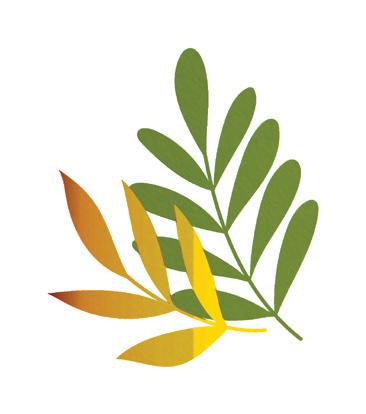






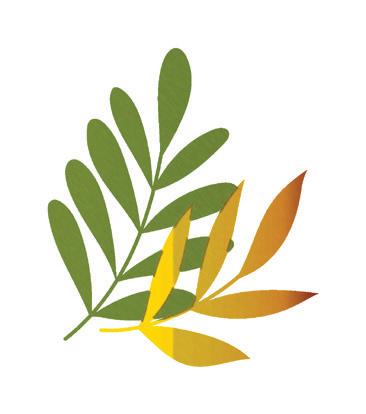






Our great value health cover helps support nurses, midwives and their families across Australia.
And as a member of the NSWNMA, you’re eligible to join.
Why not see what we can do for you?

Eligibility criteria and conditions apply. Teachers Federation Health Ltd ABN 86 097 030 414 trading as Nurses & Midwives Health. A Registered Private Health Insurer NMH-NSWNMA-04/24




















































































































































































